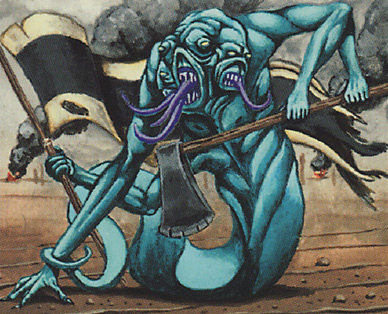Tribelander is a conflict-ridden casual Magic: The Gathering variant which emphasises creature
combat, politics, and flavorful deckbuilding. It can be played 1-on-1 but tend
to be most enjoyable in free-for-all groups of 3-5 players.
This page details the rules common to most play groups in Sweden. Locally
players might play with house rules (in particular with regards to
"flavorlander" variants), but this consensus version exists so that players
know what to expect if they join a game outside their local play area. In
particular, TribeCon in Gothenburg and the annual World Championship in Växjö
use these rules.
Deck Construction Rules
- Players must choose a creature type as the "Tribe" of their deck.
Details
Players may choose any creature type as their Tribe, it doesn't matter if it's a race (e.g. Snake, Elf, Fungus, Wraith, etc) or a class (e.g. Berserker, Druid, Soldier, Cleric, etc). If the Tribe is a class, any race within that class is considered to be a part of the Tribe, and vice versa. This includes cards in otherwise banned Tribes; e.g. if the Tribe is Berserkers, the deck may contain any Human Berserker even though the Tribe Human is banned.
For a creature to be considered a part of a Tribe, the creature type must be printed on the actual card. In particular, creatures with the "changeling" ability are not considered to be part of any Tribe other than the one printed on the type line (typically Shapeshifter).
The Tribe is the principle around which a Tribelander deck is built and will set the flavor and style of the deck.
At least 30% of the cards in the deck must be creatures within the Tribe.
A Tribelander deck must contain at least 100 cards. Details
The deck may contain more than 100 cards. If the deck contains 100 cards, at least 30 of the cards in the deck must be creatures in the Tribe; if the deck contains 150 cards, at least 45 cards must be creatures in the Tribe, and so on.
With the exception of creatures or kindred cards belonging to the Tribe and lands, no two cards in the deck may have the same english name.
The deck may contain up to four copies of any creature or kindred card within the chosen Tribe, and up to four copies of any non-basic land.
Creatures and kindred cards that don't share a creature type with the Tribe are banned from that Tribe's decks.
Non-creature cards that can create creature tokens, or become a creature, are banned unless they are able to create a token from your Tribe or become a creature from your Tribe.
Details
E.g. Thunder Totem is only legal (and restricted) in Spirits, and Swarmyard Massacre is only legal (and restricted) in Squirrels. Sarpadian Empires, Vol. VII is legal in Citizens, Thrulls, Saprolings, and Goblins (and most playgroups would accept it in Homarids). Clone Army is legal in any blue deck (as you could target yourself).
- Cards in the deck may not have any colors in their identity which are not shared with the Tribe creatures' mana cost. (The color identity of each card in the deck must be a subset of the Tribe creatures' mana cost).
Details
A card's color identity is its color plus the color of any mana symbols in the card's rules text. A card's color identity is established before the game begins, and cannot be changed by game effects.
The Tribe creatures' mana cost restricts what cards may appear in the deck.
Planeswalker cards are banned unless they clearly belong in the tribe. Details
E.g. Vraska is restricted rather than banned in Gorgons and Tamiyo is restricted rather than banned in Moonfolk. A list of recommended Tribes for each Planeswalker will be posted here eventually, but if you're unsure, check with your playgroup.
If a creature "works with the Tribe" flavorwise but is not a creature in the Tribe, it is restricted instead of banned.
Details
E.g. Endrek Sahr is restricted in Thrulls and Ratcatcher is restricted in Rats, even though they are not technically part of the Tribe. If you're unsure if a creature should be considered an ally of the Tribe, check with your playgroup.
Tribelander is played with Vintage legal cards.
Play rules
- The start of game procedure for Tribelander is as follows:
- Players announce their choice of Tribe.
- Each player draws a hand of seven cards.
- Players may mulligan. The first mulligan is "free"; i.e. players may opt to shuffle their first opening hand into their deck and draw a new hand of seven cards. Any following mullingan may be taken using the "London mulligan" method.
London Mulligan rule
To take a London mulligan, a player shuffles the cards in their hand back into their library, draws a new hand of cards equal to their starting hand size, then puts a number of those cards equal to the number of times that player has taken a London mulligan on the bottom of their library in any order. This process is repeated until a players chooses to keep their hand, or have zero cards in hand.
Players begin the game with 30 life.
- Tribelander use the normal rules for winning or losing the game, with the following additions and specifications.
- Triggered or activated abilities that make a player win the game or make an opponent lose the game have no effect instead.
- If a player has fifteen or more poison counters, that player loses the game. (This is a state-based action.)
If a player has the choice to perform a series of actions an arbitrary number of times, that player cannot choose to perform that series of actions more than once each turn. Details.
As an example, consider the interaction between Pestermite and Splinter Twin. A player could normaly may tap an enchanted Pestermite to copy itself and then use the copy to untap the enchanted Pestermite any number of times. In Tribelander the number of loops through that interaction cannot be more than one each turn. In short, most "infinite combos" are banned.
Abilities which refer to other cards owned outside the game (Wishes, Ring of Ma'ruf, etc) do not function in Tribelander unless an optional sideboard rule is in use. If sideboards are used, wishes and similar cards may retrieve sideboard cards.
Tribelander is designed to promote social interaction while lightly backstabbing your friends and pouring small quantities of salt in their wounds.
Cards and interactions that might be frowned upon in other multiplayer formats, such as mass land destruction and other types of resource denial are well within "the spirit of the format" in Tribelander.
However, everything isn't fair game even in Tribelander. The following cards have proved themself to be problematic enough to warrant either a restriction (i.e. at most one copy is allowed in decks where the card would otherwise be legal), or a ban (the card can not be played in any Tribelander deck).1
RESTRICTED
-
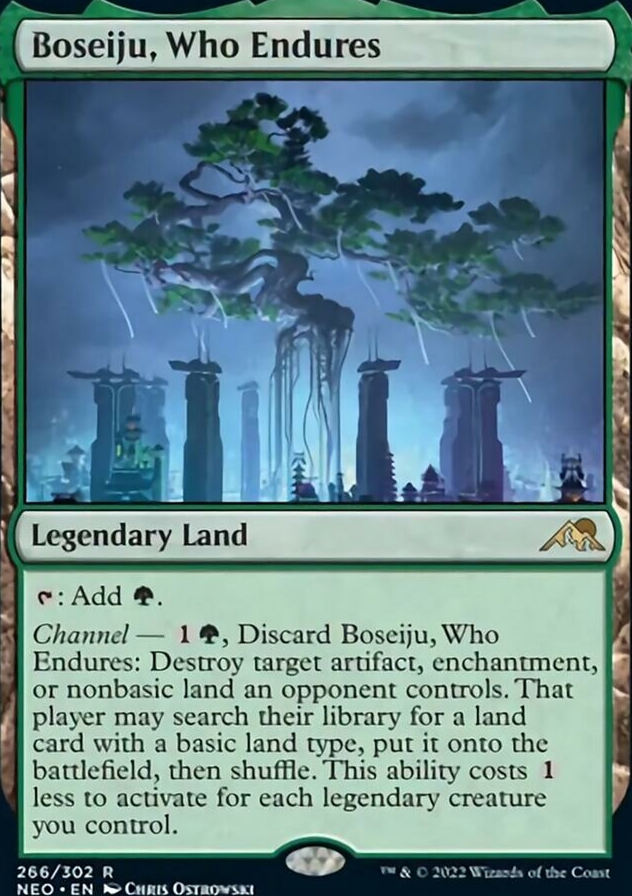 Boseiju, Who Endures
Boseiju, Who Endures
-
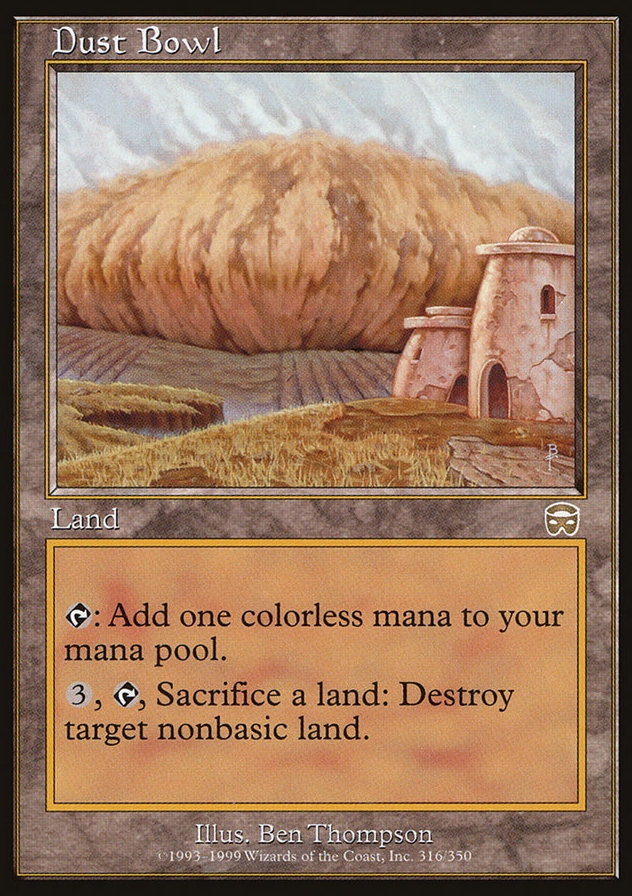 Dust Bowl
Dust Bowl
-
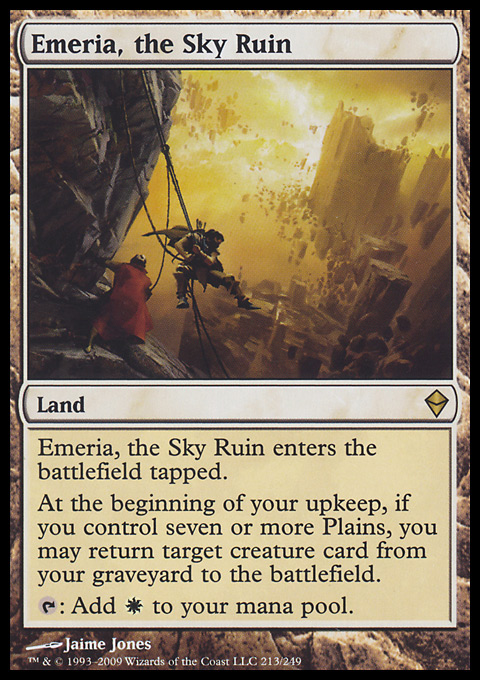 Emeria, the Sky Ruin
Emeria, the Sky Ruin
-
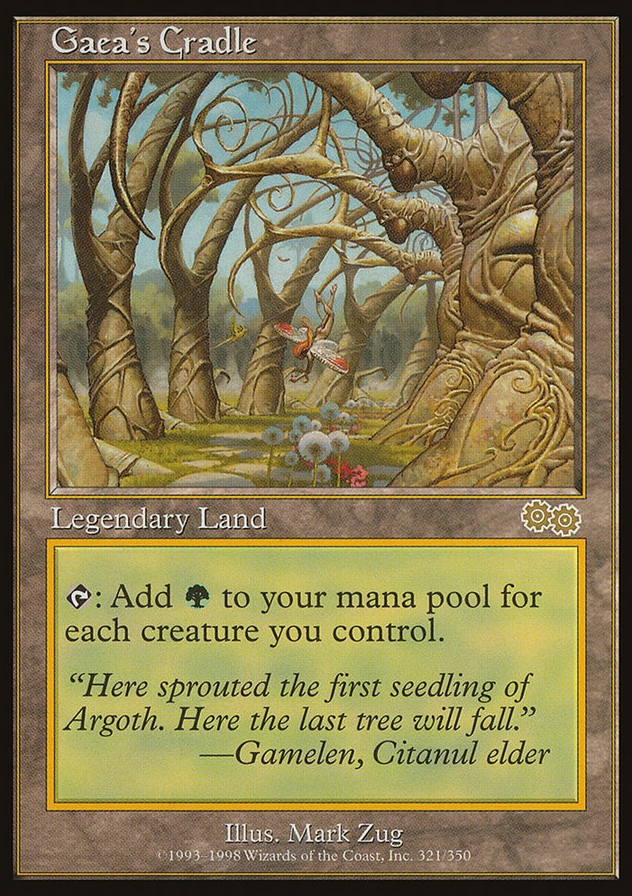 Gaea's Cradle
Gaea's Cradle
-
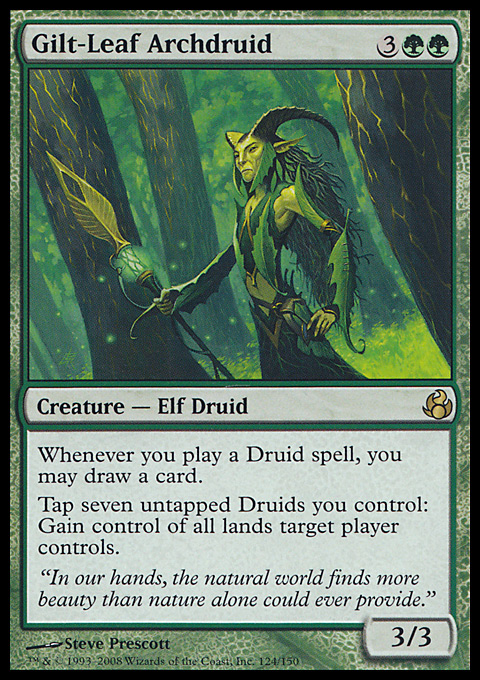 Gilt-Leaf Archdruid
Gilt-Leaf Archdruid
-
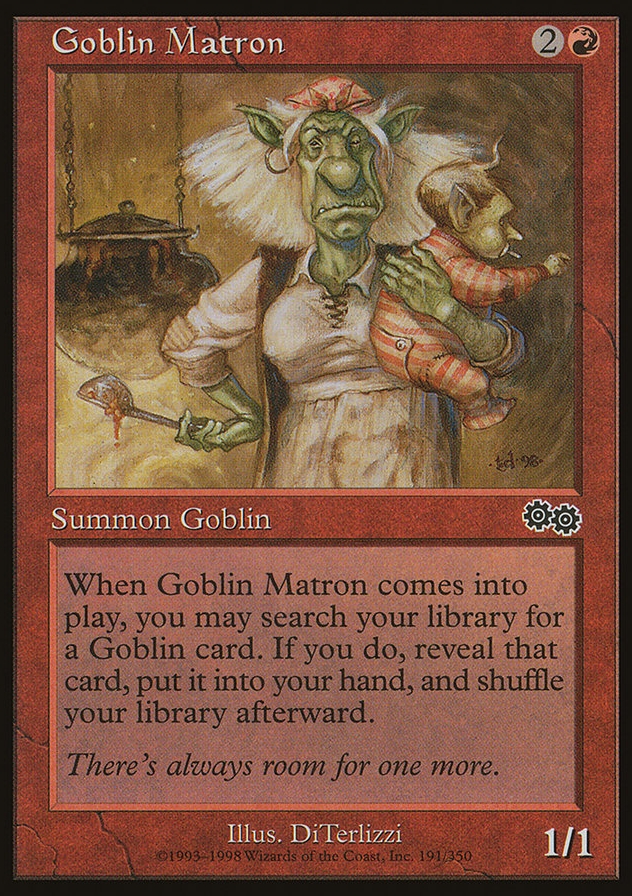 Goblin Matron
Goblin Matron
-
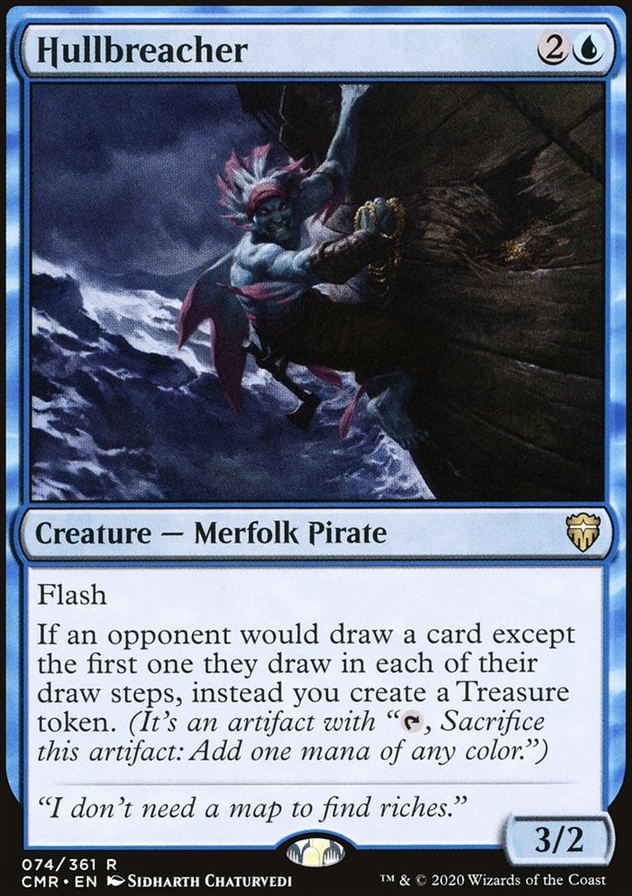 Hullbreacher
Hullbreacher
-
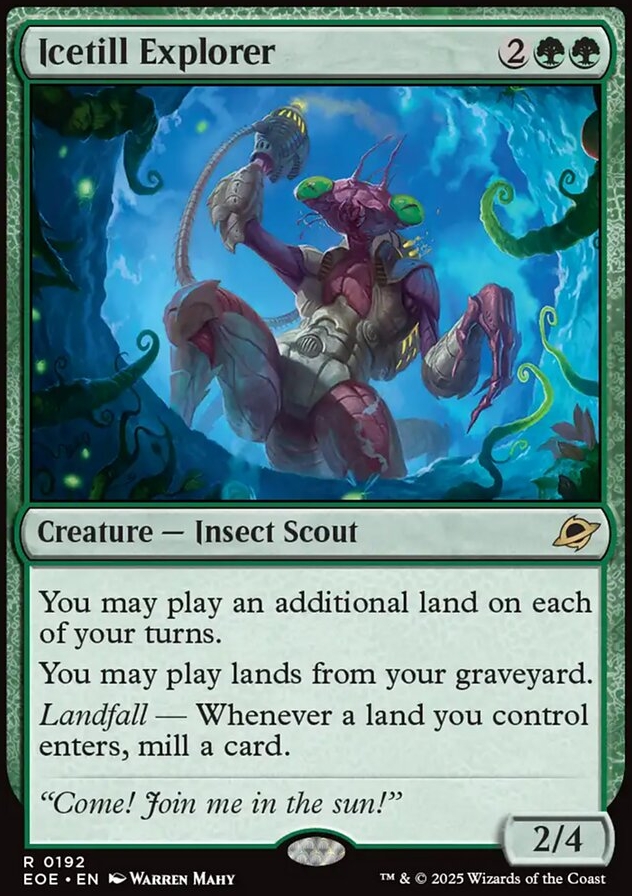 Icetill Explorer
Icetill Explorer
-
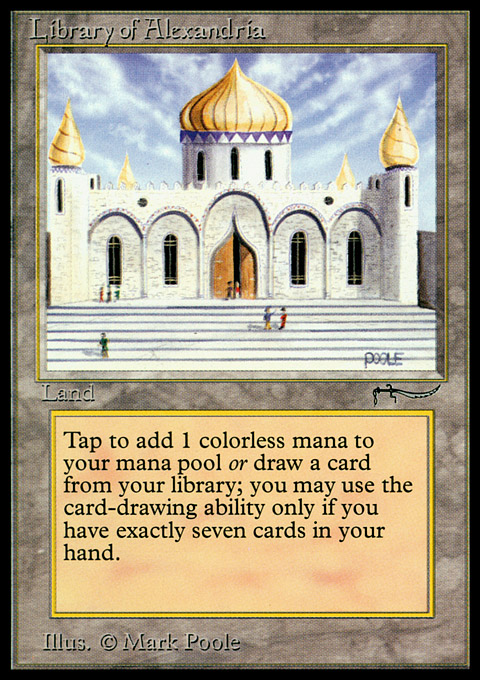 Library of Alexandria
Library of Alexandria
-
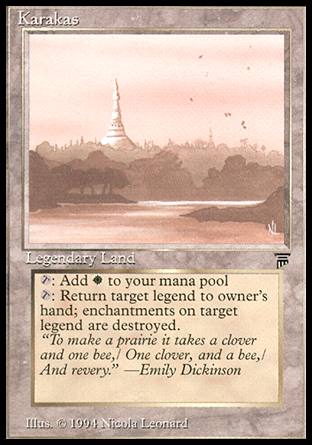 Karakas
Karakas
-
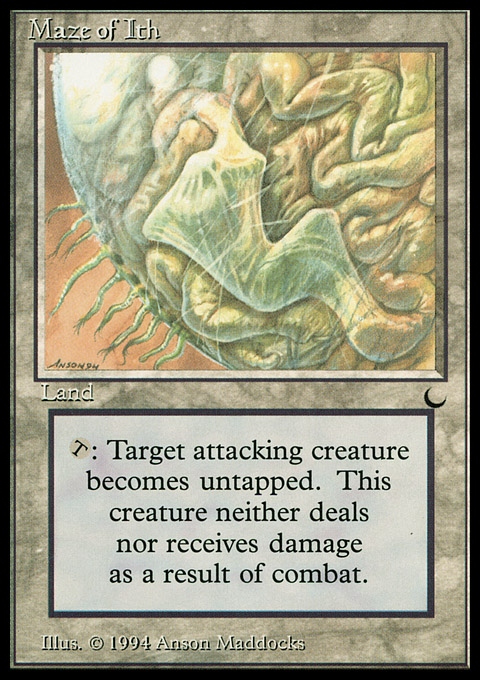 Maze of Ith
Maze of Ith
-
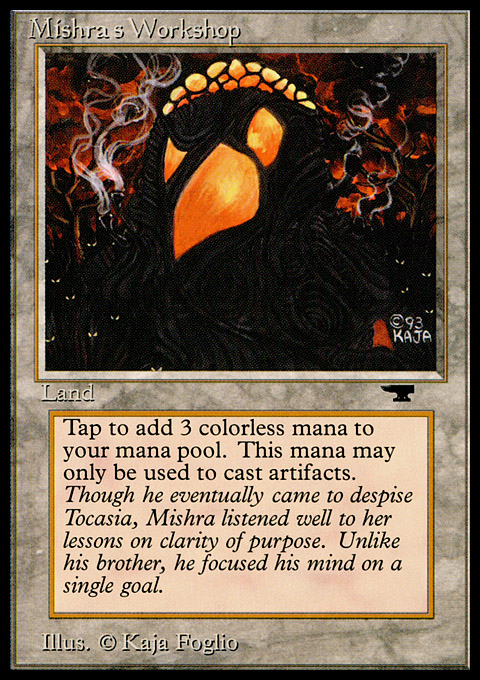 Mishra's Workshop
Mishra's Workshop
-
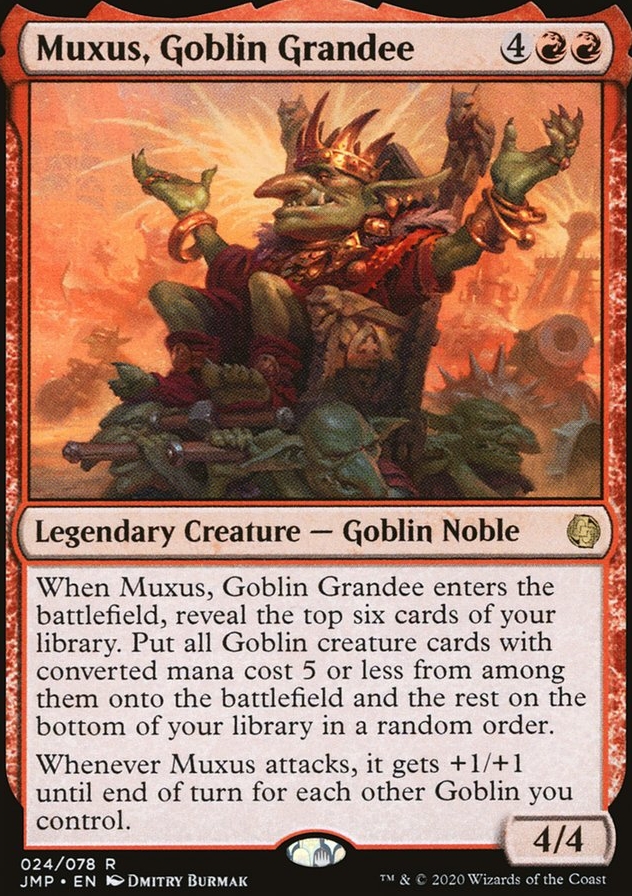 Muxus, Goblin Grandee
Muxus, Goblin Grandee
-
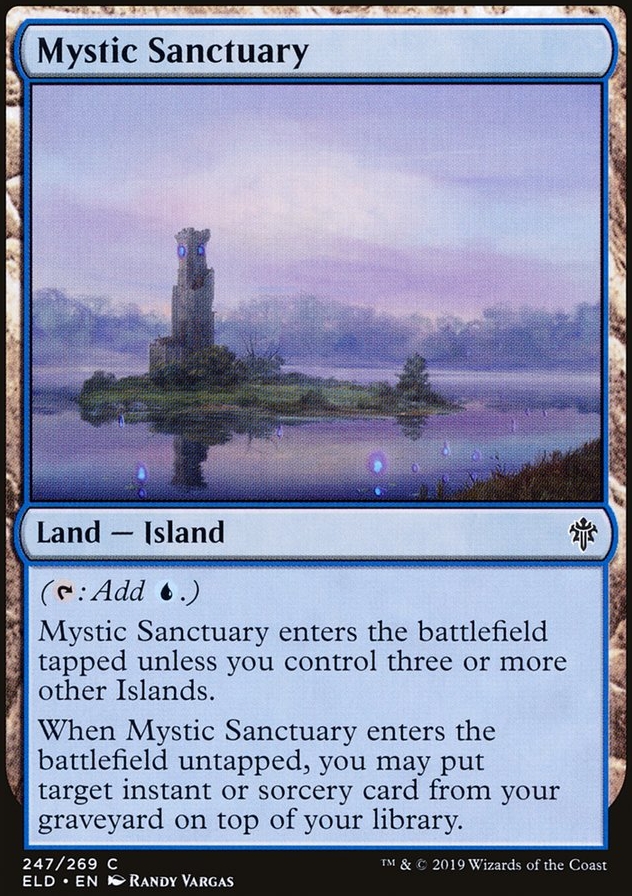 Mystic Sanctuary
Mystic Sanctuary
-
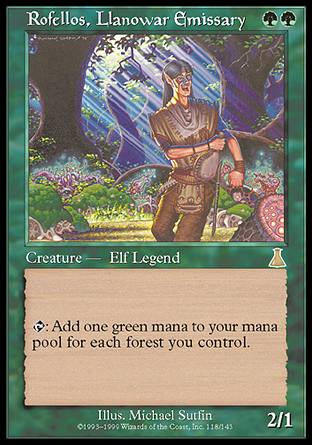 Rofellos, Llanowar Emissary
Rofellos, Llanowar Emissary
-
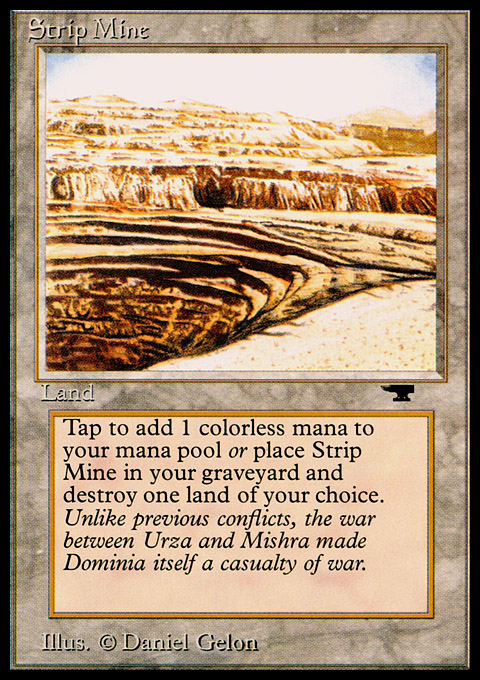 Strip Mine
Strip Mine
-
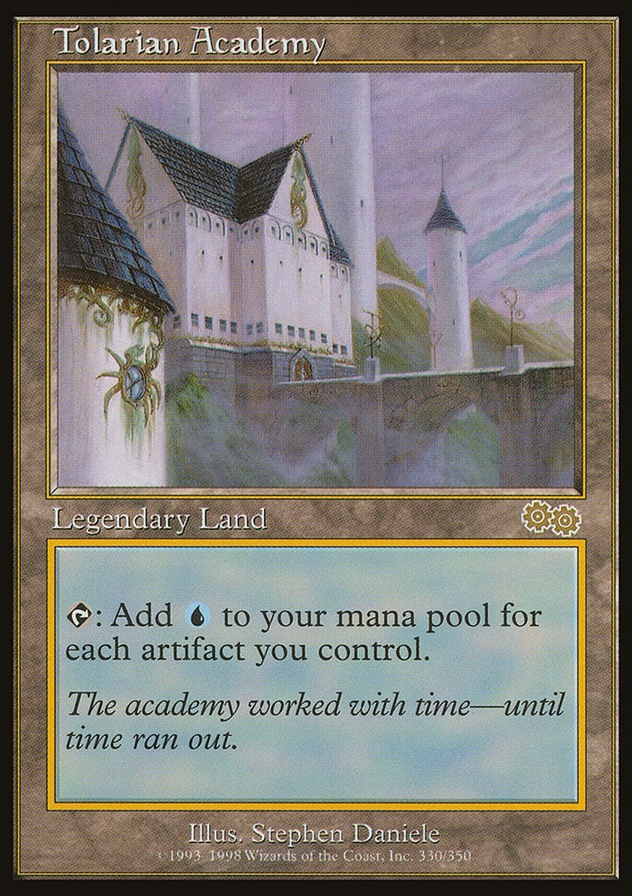 Tolarian Academy
Tolarian Academy
-
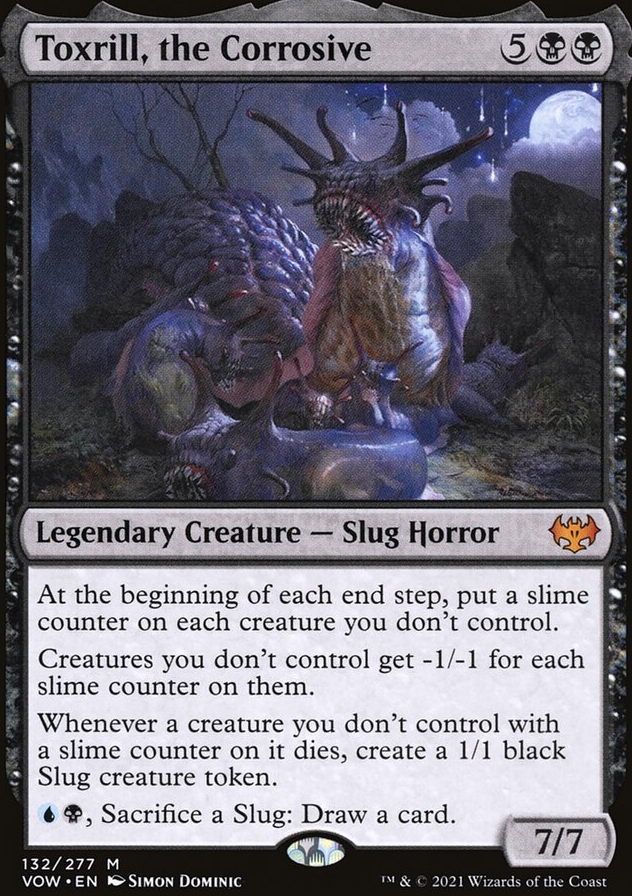 Toxrill, the Corrosive
Toxrill, the Corrosive
-
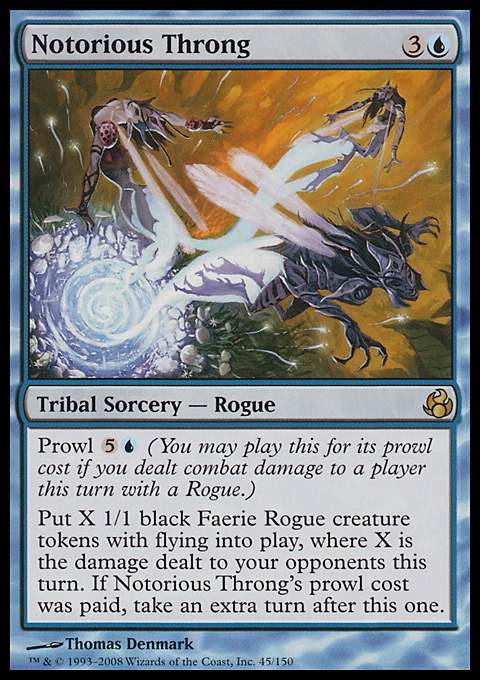 Notorious Throng
Notorious Throng
-
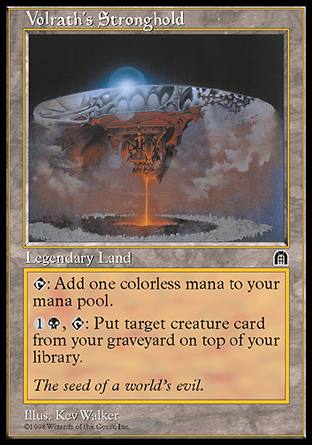 Volrath's Stronghold
Volrath's Stronghold
BANNED
-
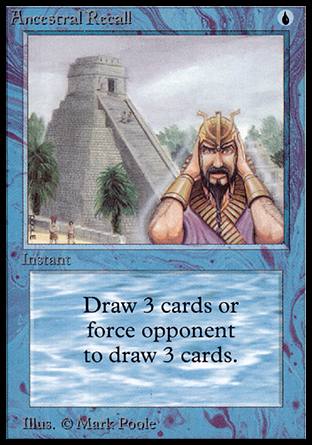 Ancestral Recall
Ancestral Recall
-
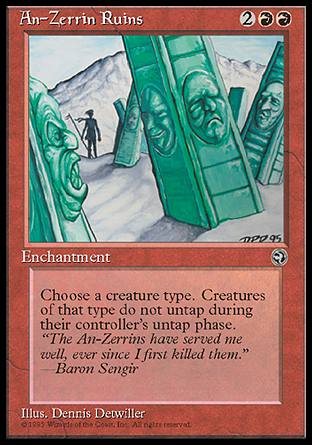 An-Zerrin Ruins
An-Zerrin Ruins
-
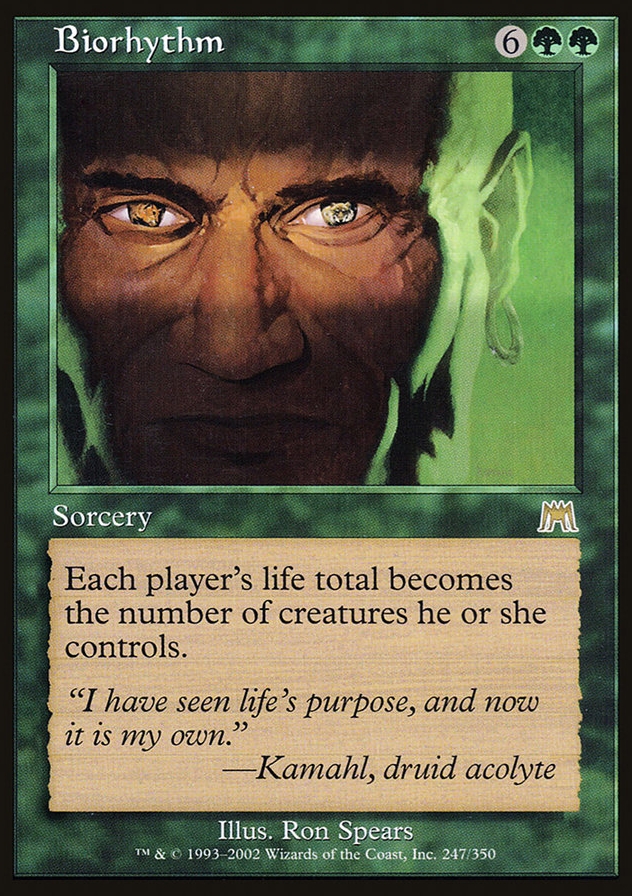 Biorhythm
Biorhythm
-
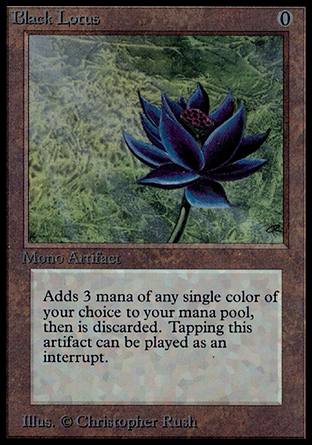 Black Lotus
Black Lotus
-
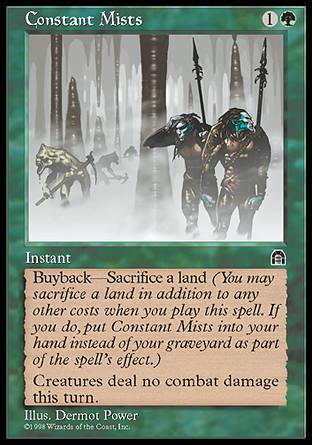 Constant Mists
Constant Mists
-
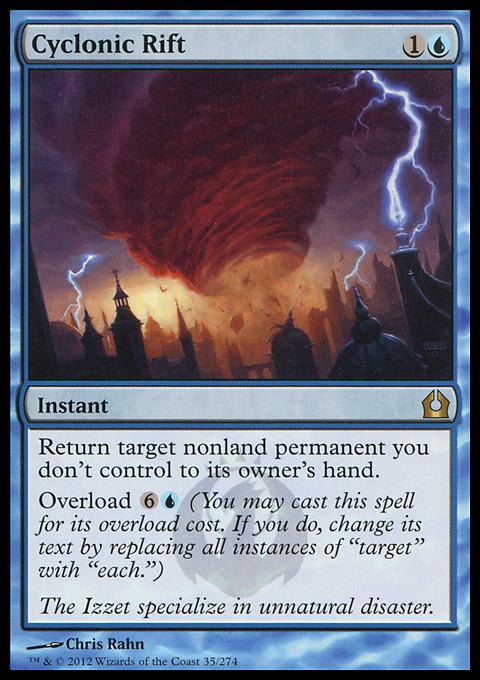 Cyclonic Rift
Cyclonic Rift
-
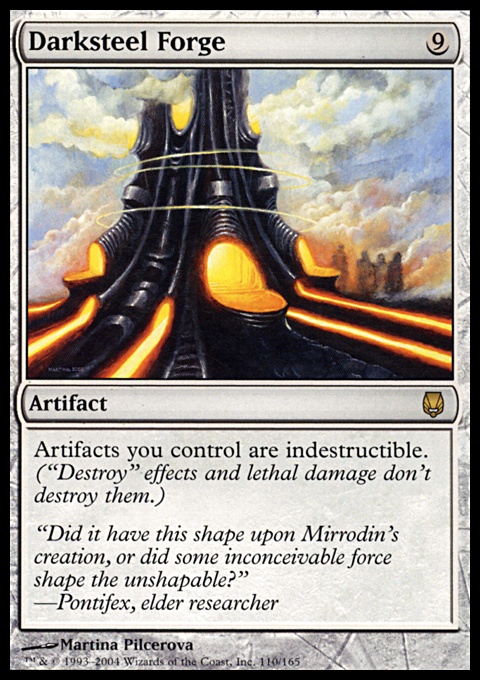 Darksteel Forge
Darksteel Forge
-
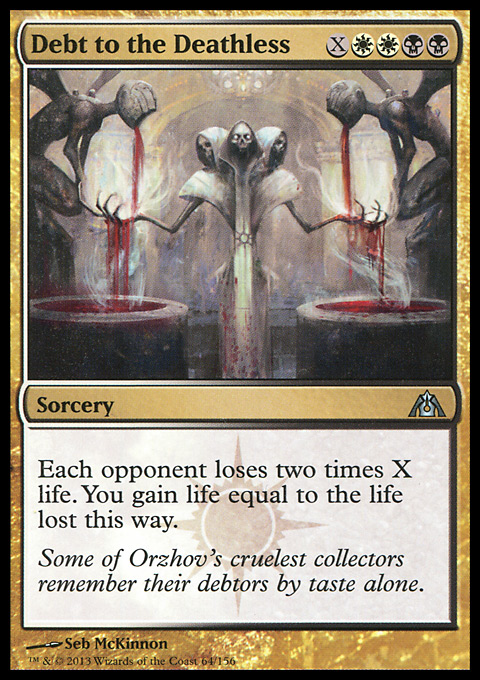 Debt to the Deathless
Debt to the Deathless
-
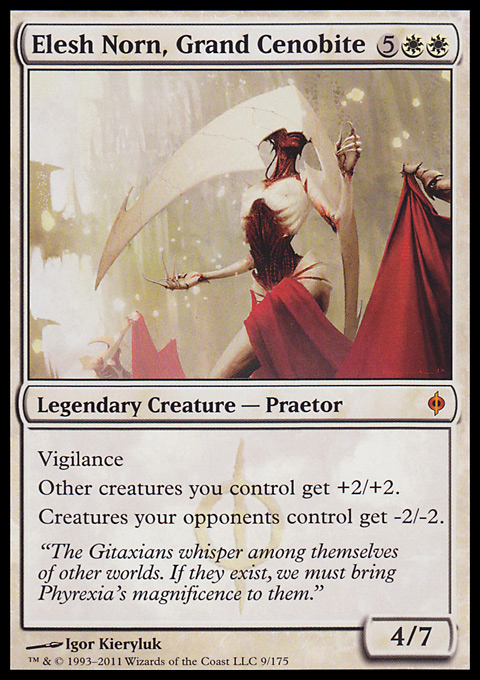 Elesh Norn, Grand Cenobite
Elesh Norn, Grand Cenobite
-
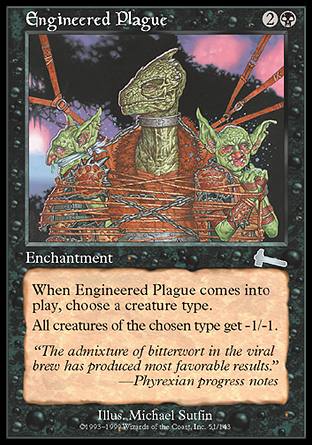 Engineered Plague
Engineered Plague
-
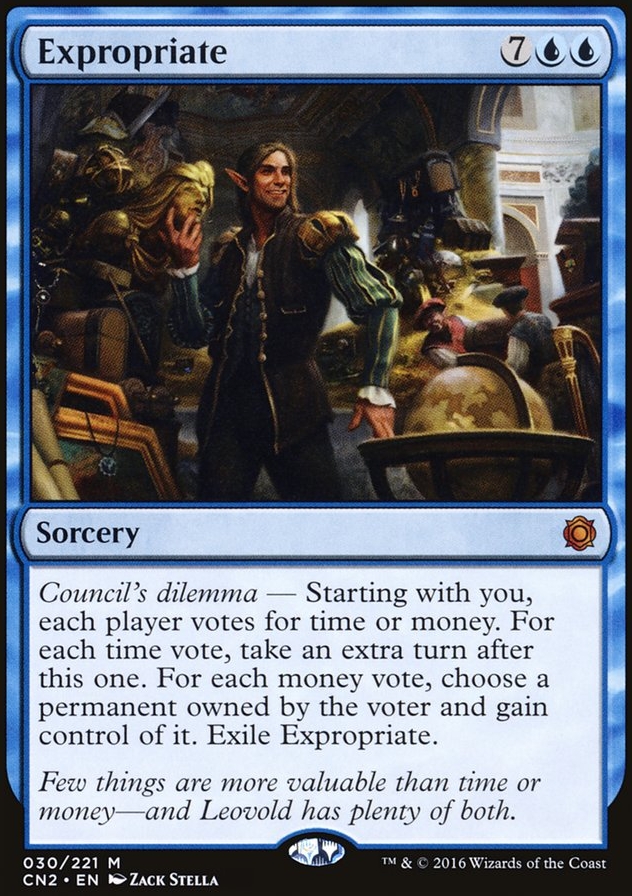 Expropriate
Expropriate
-
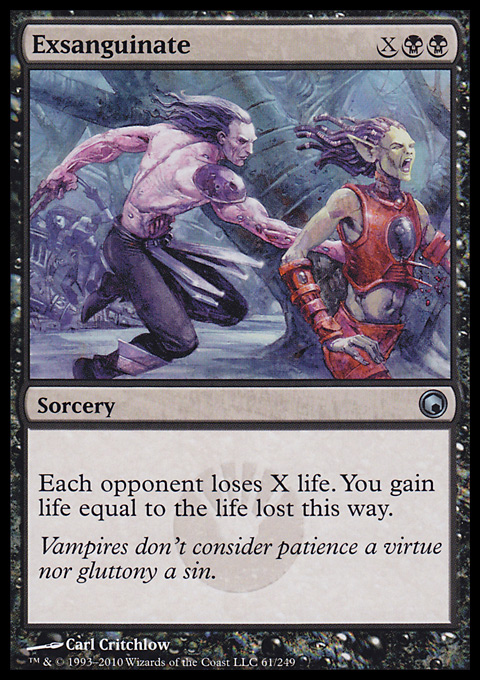 Exsanguinate
Exsanguinate
-
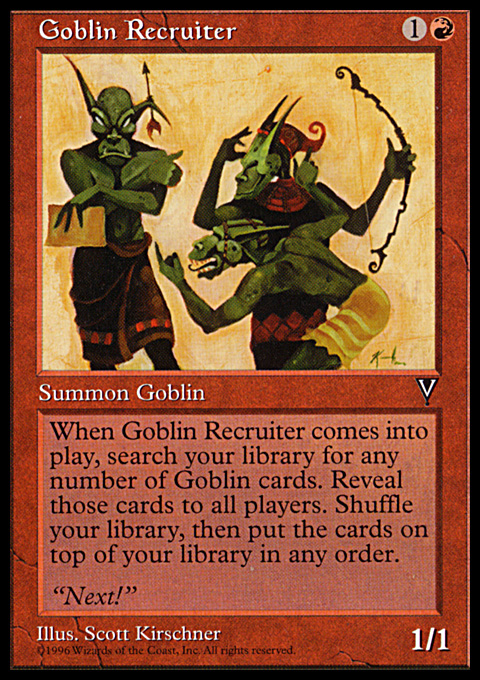 Goblin Recruiter
Goblin Recruiter
-
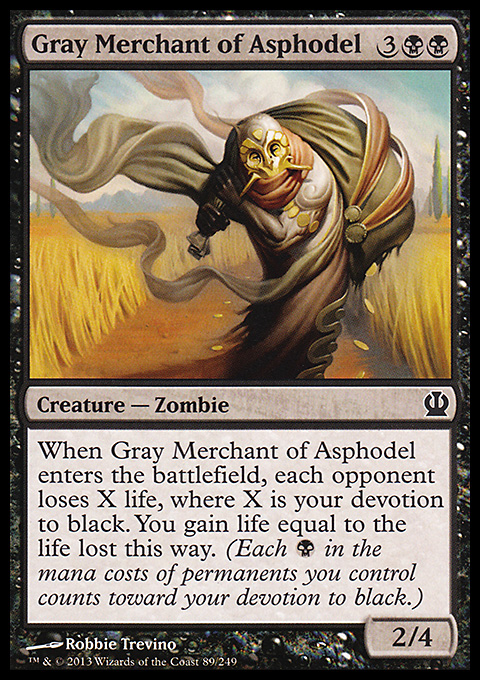 Gray Merchant of Asphodel
Gray Merchant of Asphodel
-
 Humility
Humility
-
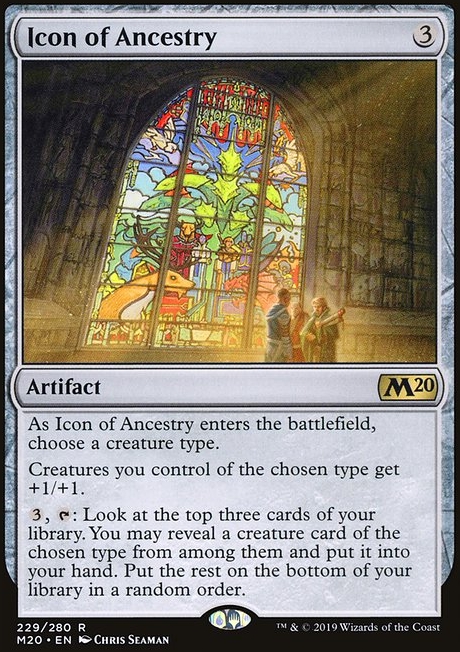 Icon of Ancestry
Icon of Ancestry
-
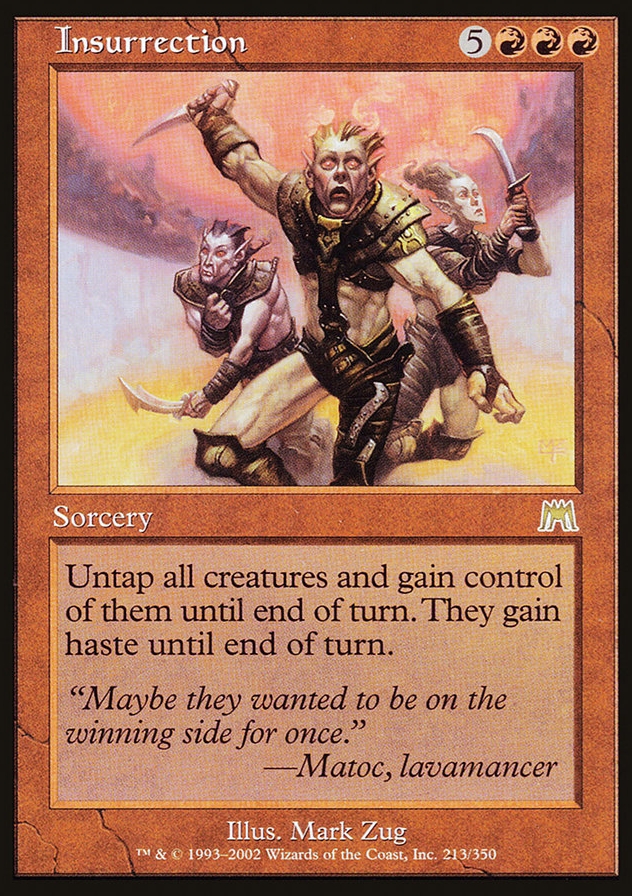 Insurrection
Insurrection
-
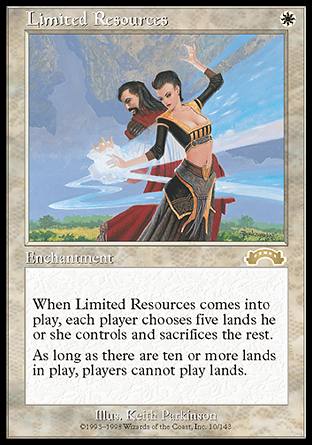 Limited Resources
Limited Resources
-
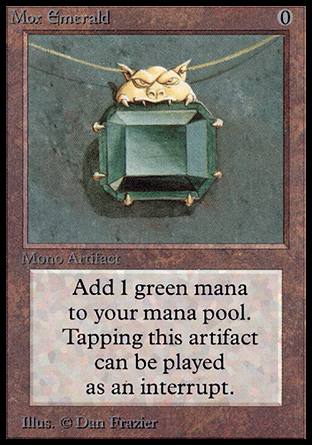 Mox Emerald
Mox Emerald
-
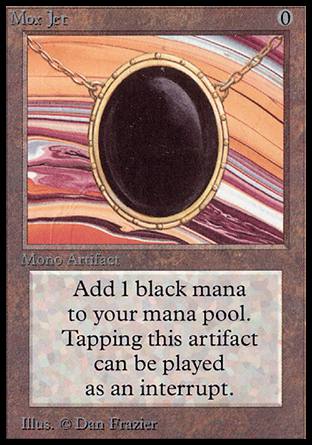 Mox Jet
Mox Jet
-
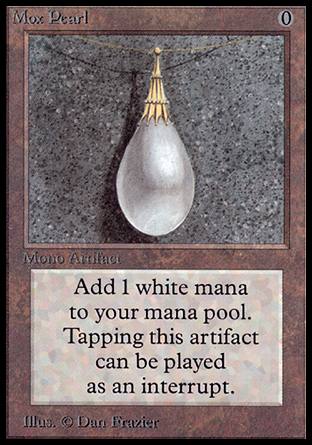 Mox Pearl
Mox Pearl
-
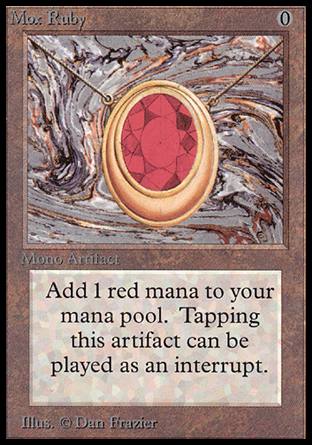 Mox Ruby
Mox Ruby
-
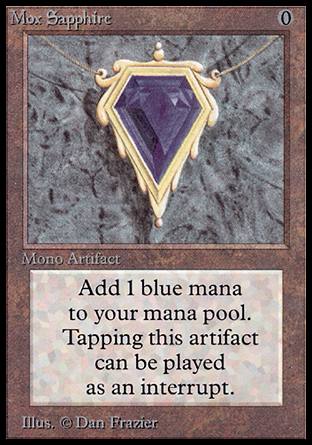 Mox Sapphire
Mox Sapphire
-
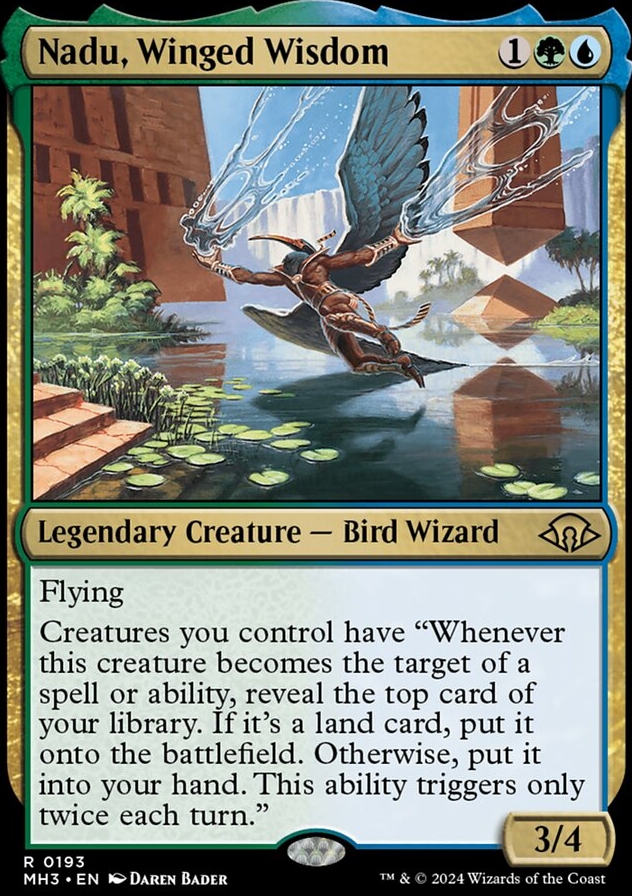 Nadu, Winged Wisdom
Nadu, Winged Wisdom
-
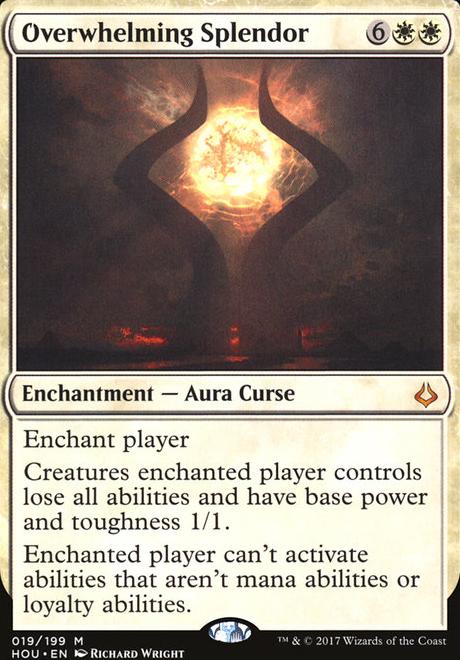 Overwhelming Splendor
Overwhelming Splendor
-
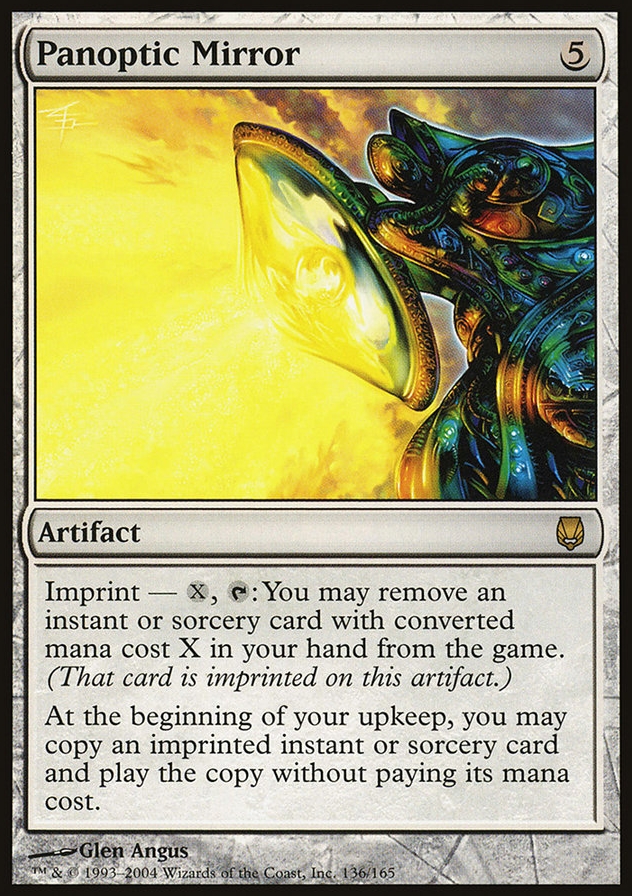 Panoptic Mirror
Panoptic Mirror
-
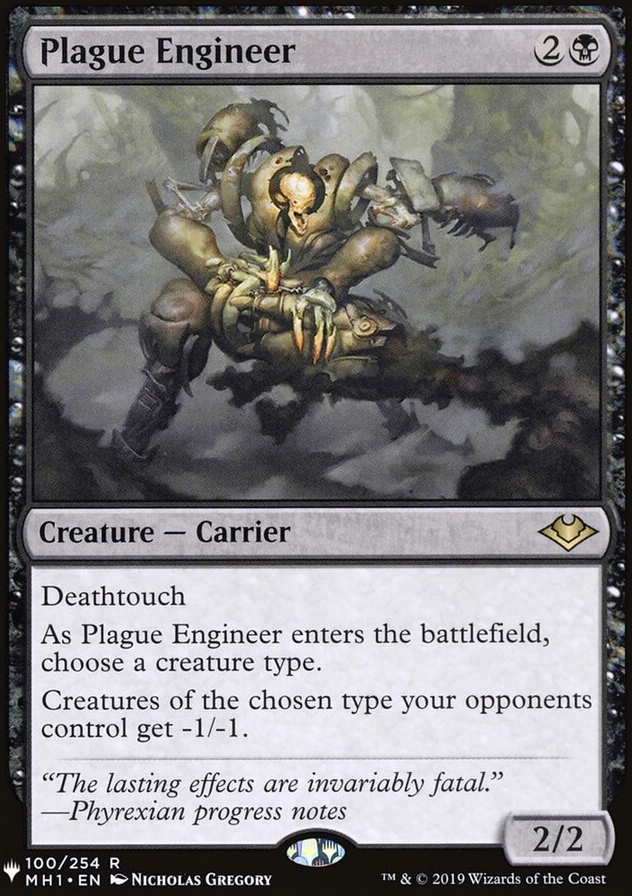 Plague Engineer
Plague Engineer
-
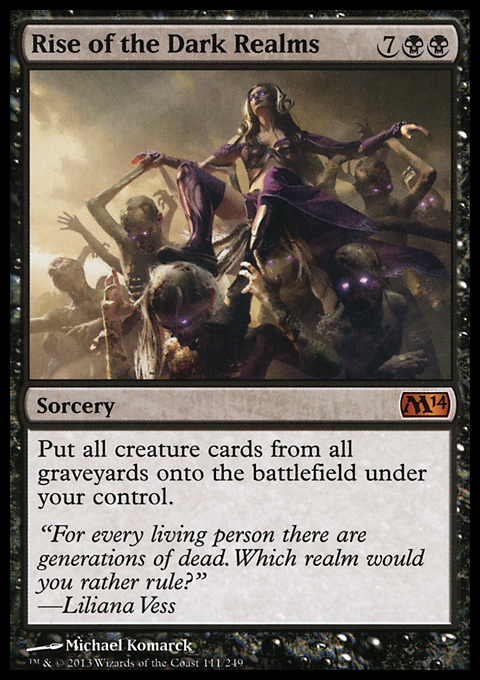 Rise of the Dark Realms
Rise of the Dark Realms
-
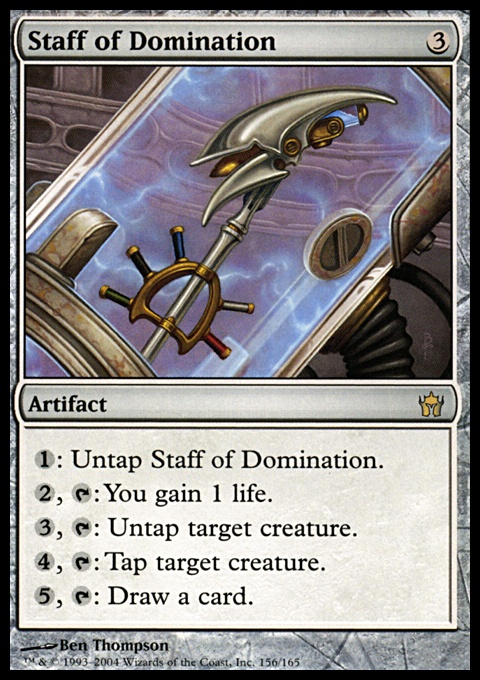 Staff of Domination
Staff of Domination
-
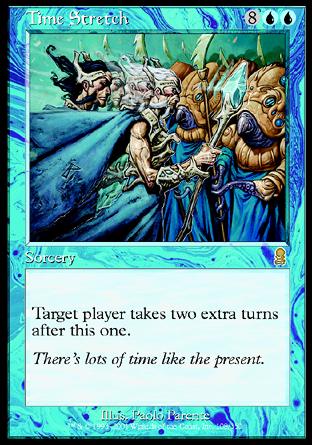 Time Stretch
Time Stretch
-
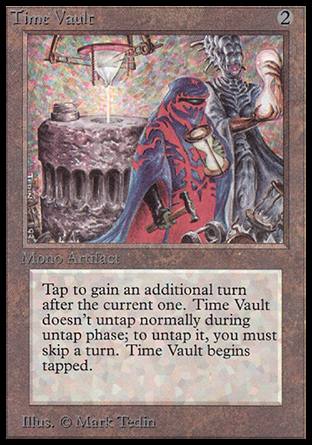 Time Vault
Time Vault
-
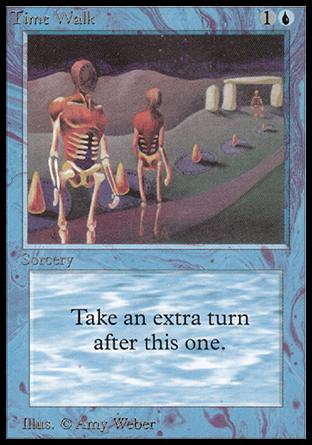 Time Walk
Time Walk
-
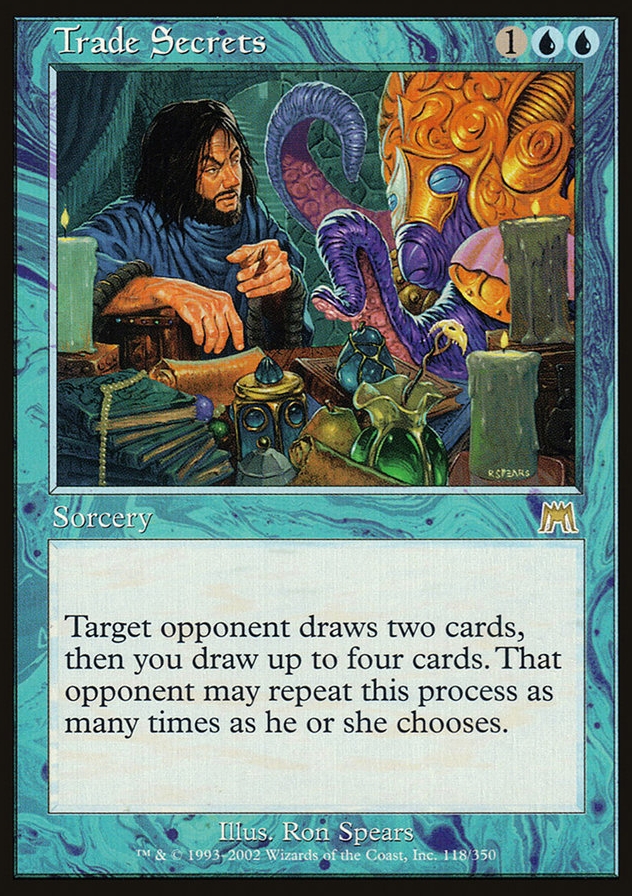 Trade Secrets
Trade Secrets
-
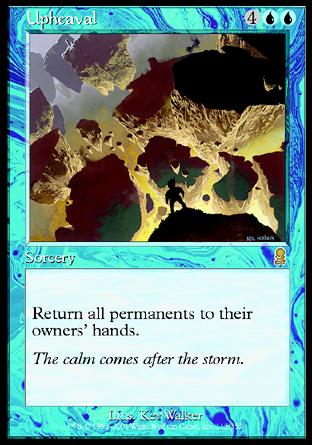 Upheaval
Upheaval
-
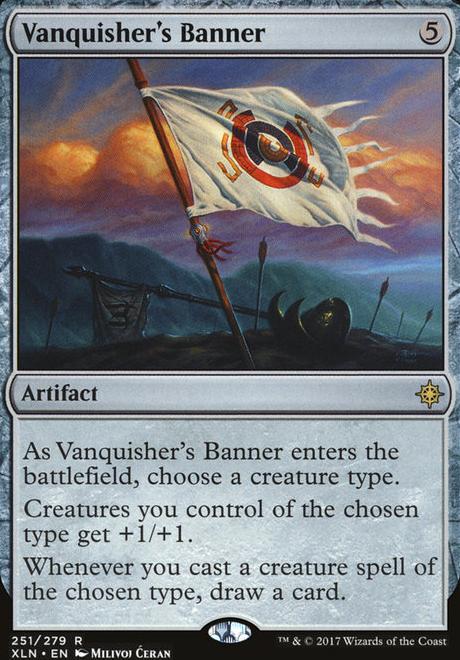 Vanquisher's banner
Vanquisher's banner
-
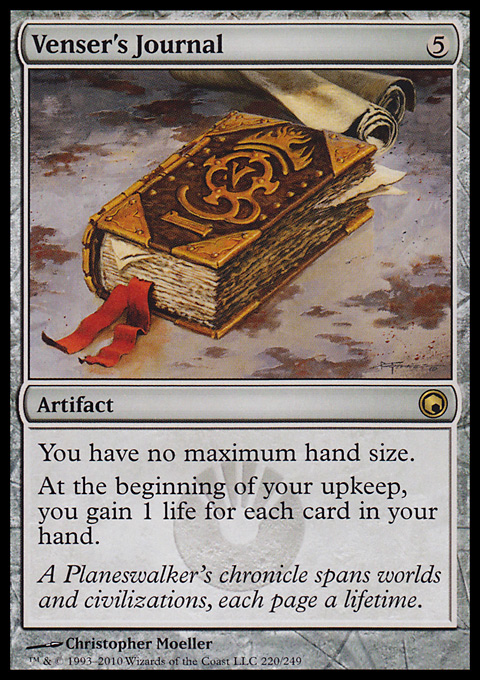 Venser's journal
Venser's journal
-
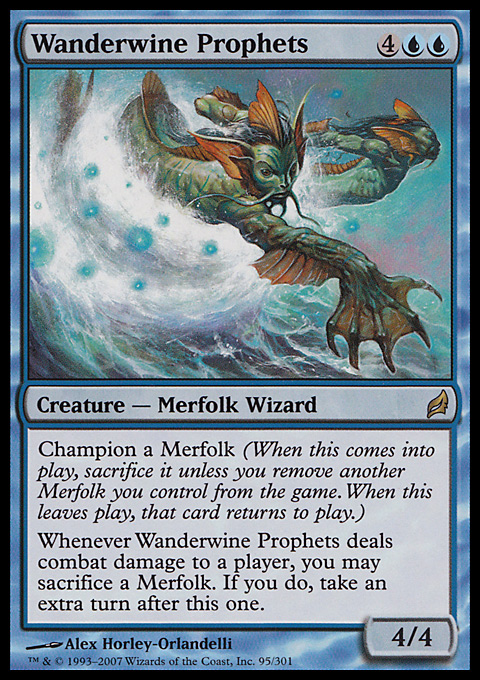 Wanderwine Prophets
Wanderwine Prophets
The following creature types are banned from being chosen as Tribes:
- Angels
- Avatars
- Eldrazi
- Elementals
- Humans
- Slivers
- Vampires
- Wizards
In addition to the Vintage card pool, the following three cards are also legal in Tribelander:
- Rebirth is legal and restricted
- Shahrazad is legal and restricted
- Splendid Genesis is legal and restricted
1It could be noted that cards are banned in Tribelander based on actual performance. While it is clear that there exists e.g. a lot of problematic Phyrexian creatures, as no player has decided to show up with a problematic Phyrexain Tribelander deck to a tournament yet, as of now cards from that Tribe have avoided the banhammer.

World Championship Winners
2015: Snakes, by Mg
-
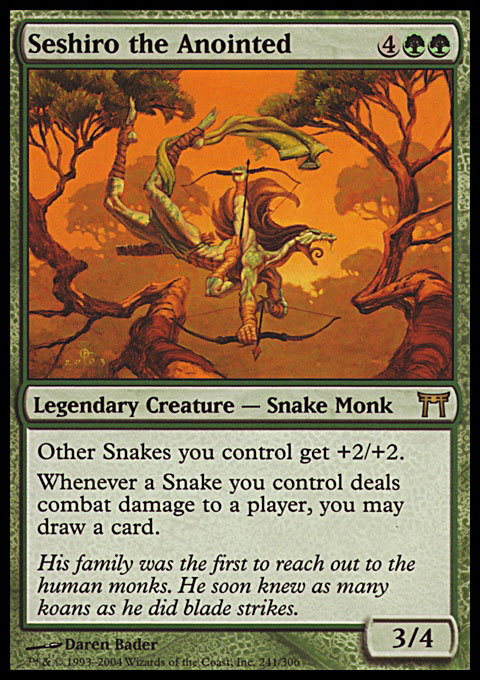 Seshiro, the Anointed
Seshiro, the Anointed
-
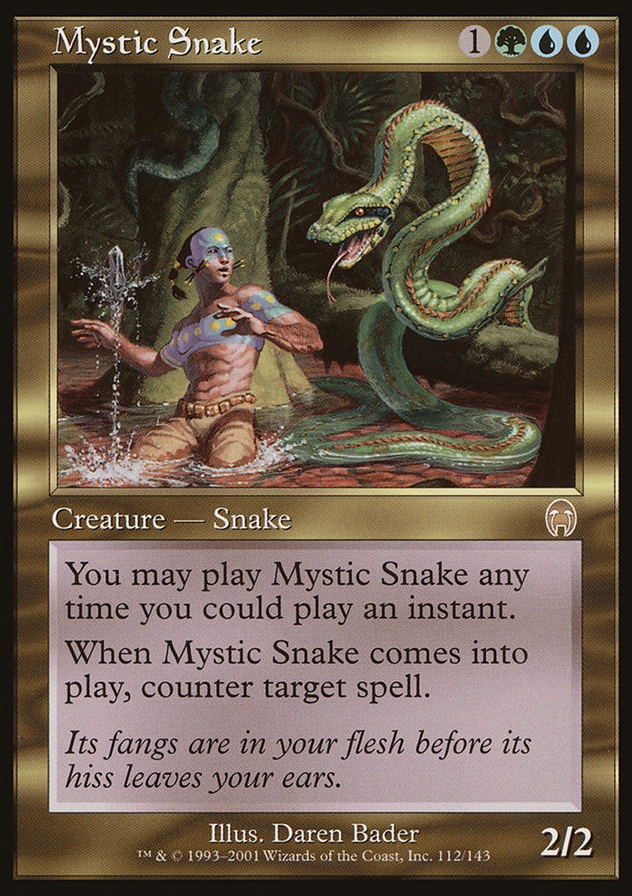 Mystic Snake
Mystic Snake
-
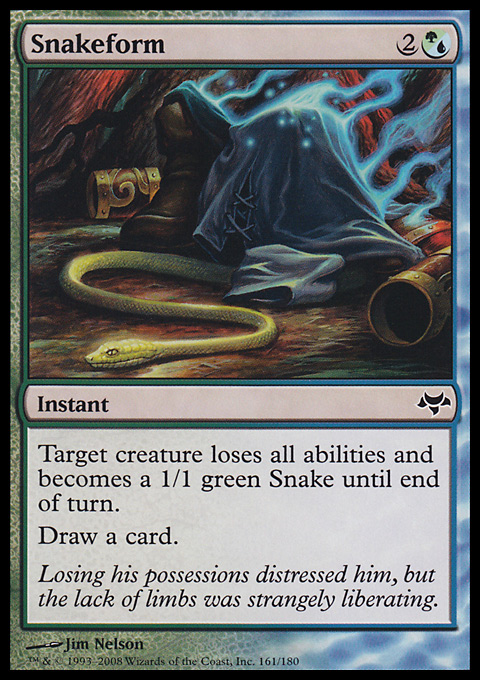 Snakeform
Snakeform
2016: Rogues, by Jokemon
-
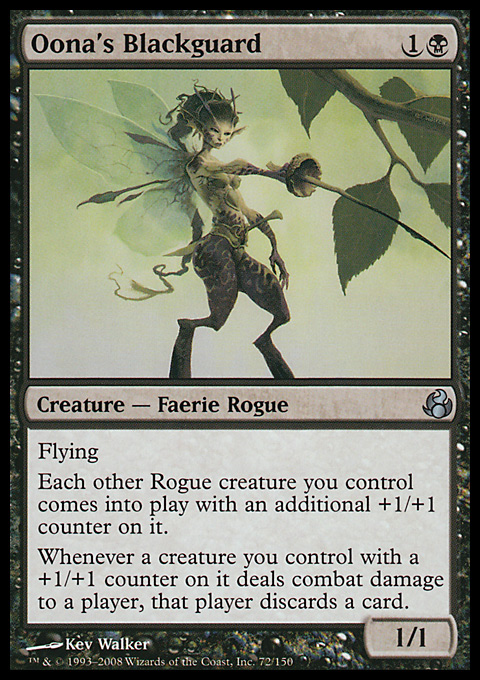 Oona's Blackguard
Oona's Blackguard
-
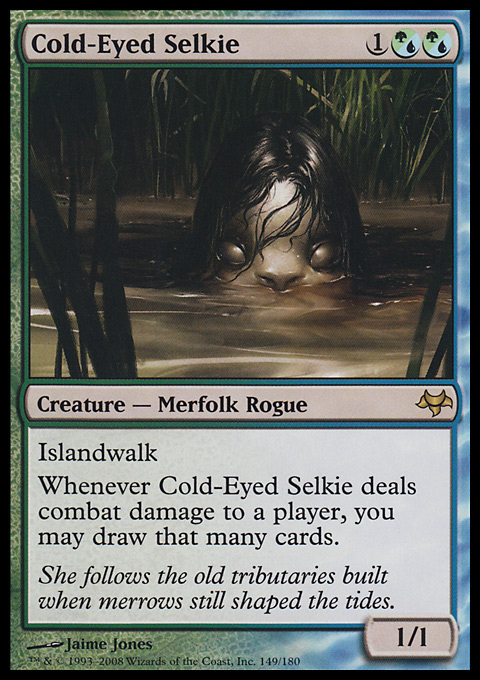 Cold-Eyed Selkie
Cold-Eyed Selkie
-
 Notorious Throng
Notorious Throng
2017: Warriors, by Tibia
-
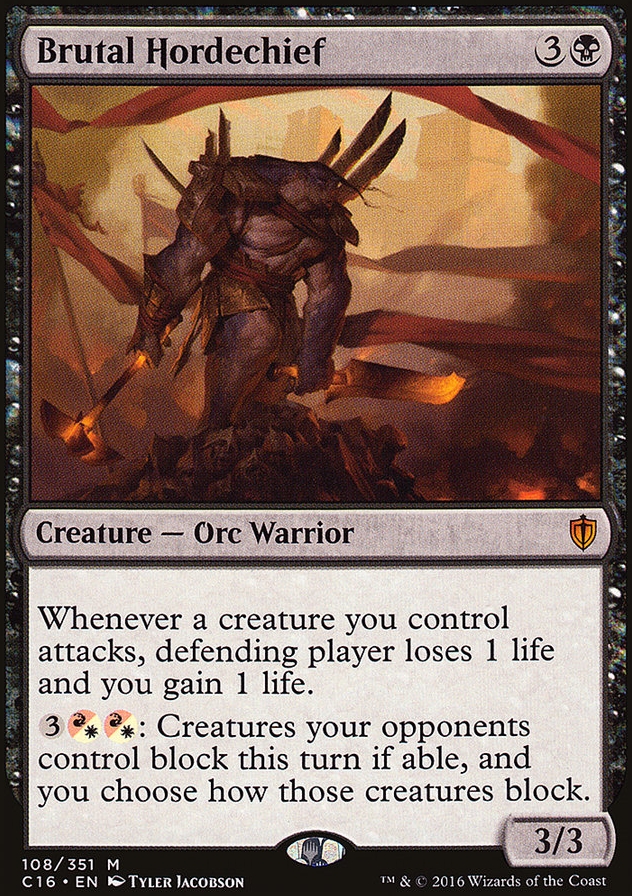 Brutal Hordechief
Brutal Hordechief
-
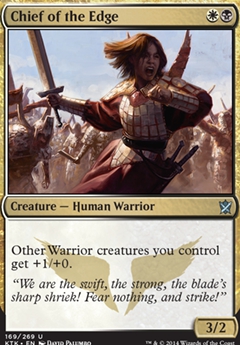 Chief of the Edge
Chief of the Edge
-
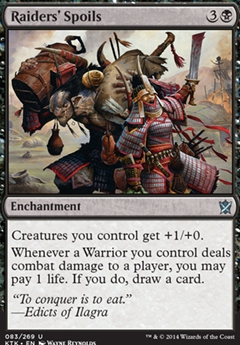 Raiders' Spoils
Raiders' Spoils
2018: Knights, by Honka
-
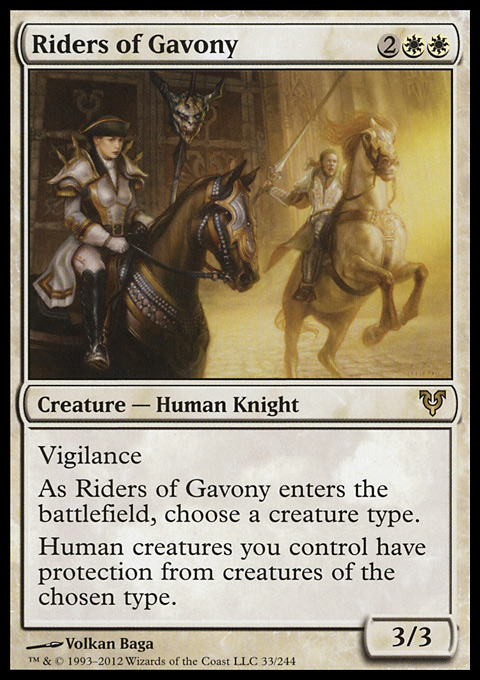 Riders of Gavony
Riders of Gavony
-
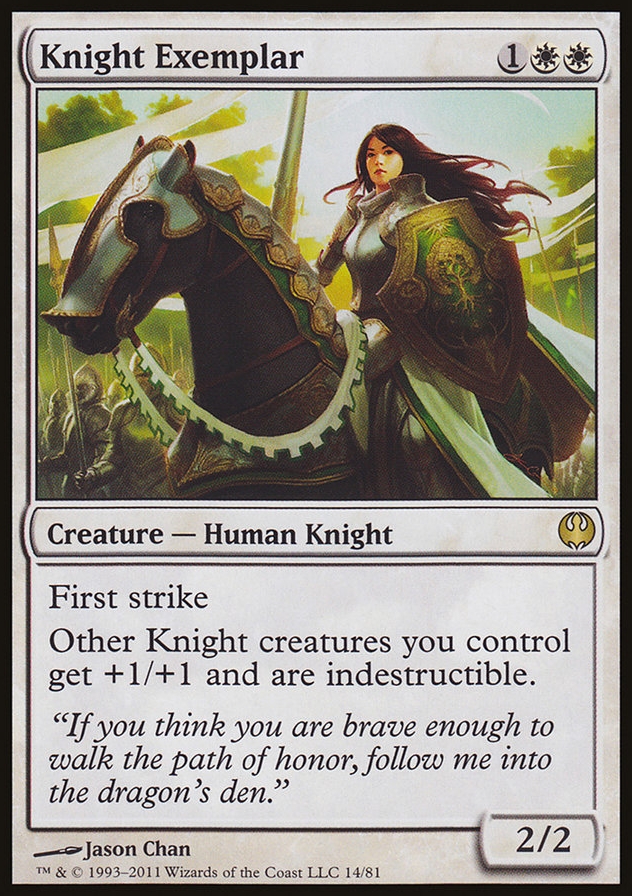 Knight Exemplar
Knight Exemplar
-
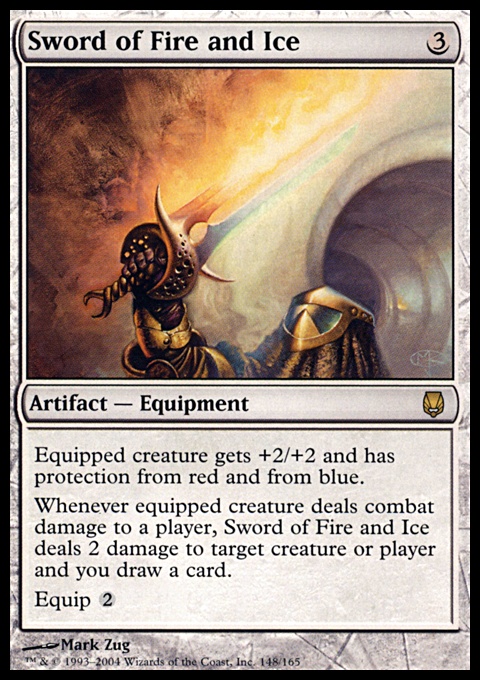 Sword of Fire and Ice
Sword of Fire and Ice
2019: Plants, by Malu
-
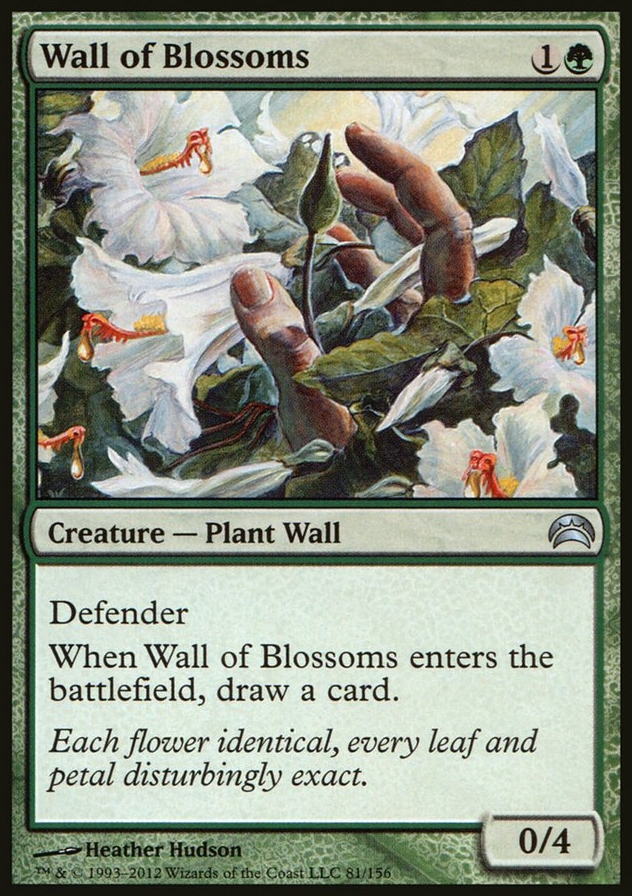 Wall of Blossoms
Wall of Blossoms
-
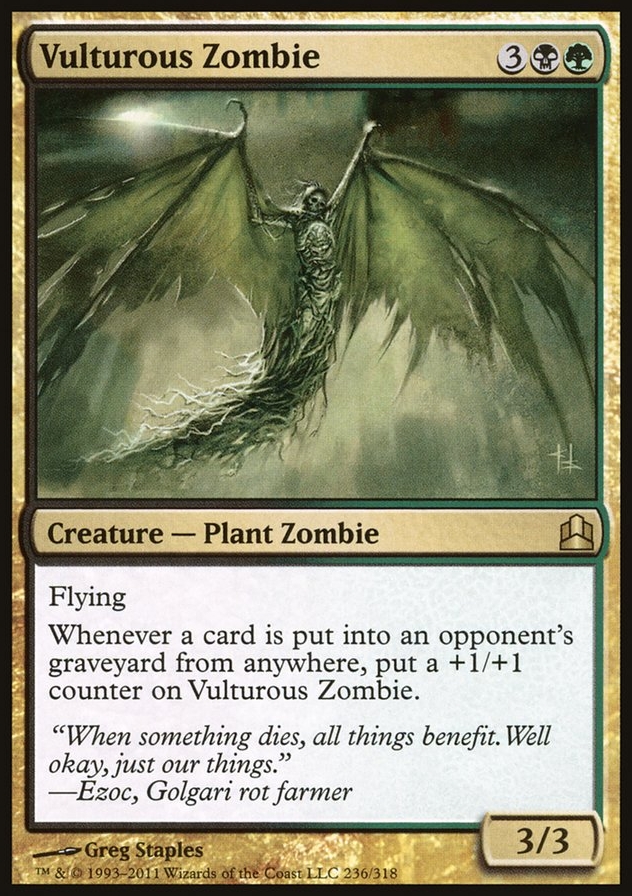 Vulturous Zombie
Vulturous Zombie
-
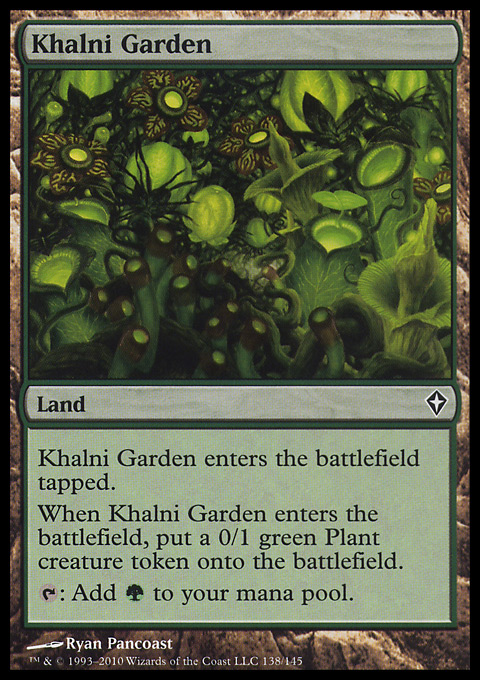 Khalni Garden
Khalni Garden
2020, 2021: Cancelled due to the pandemic
2022: Dwarves, by Flax
-
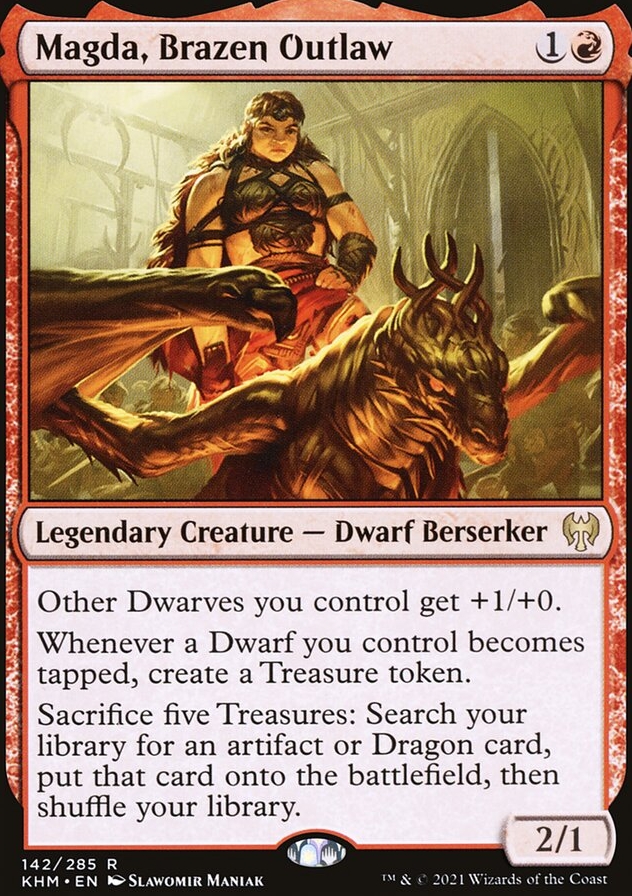 Magda, Brazen Outlaw
Magda, Brazen Outlaw
-
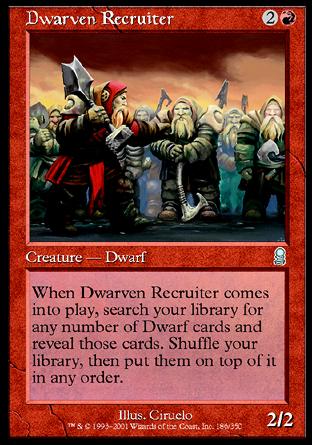 Dwarven Recruiter
Dwarven Recruiter
-
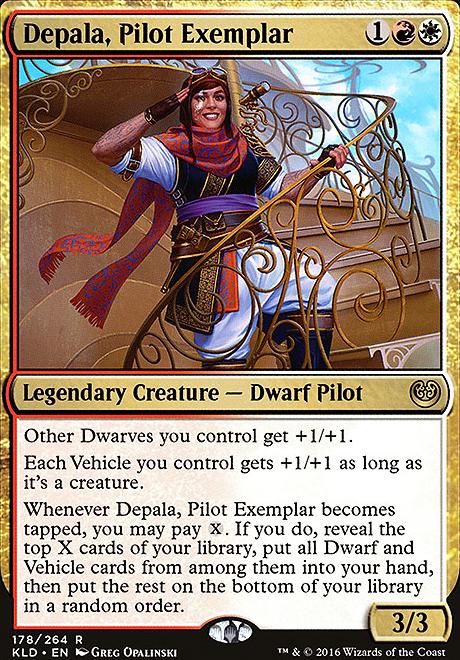 Depala, Pilot Exemplar
Depala, Pilot Exemplar
2023: Squirrels, by Vigo
-
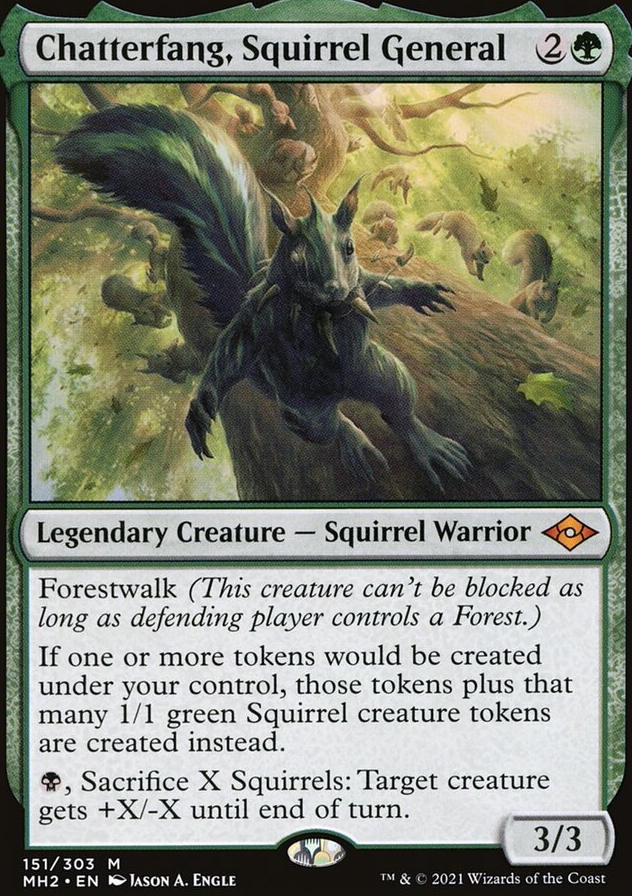 Chatterfang, Squirrel General
Chatterfang, Squirrel General
-
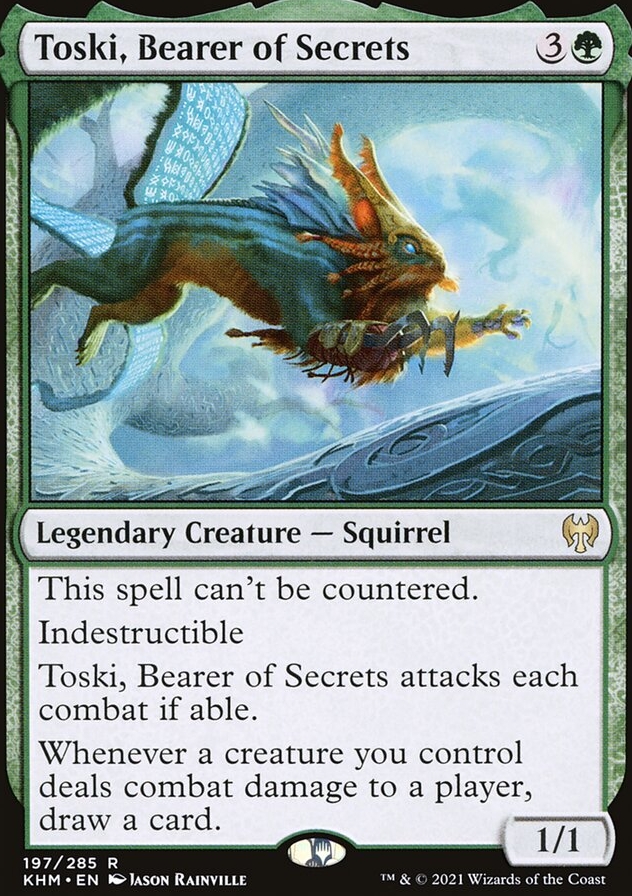 Toski, Bearer of Secrets
Toski, Bearer of Secrets
-
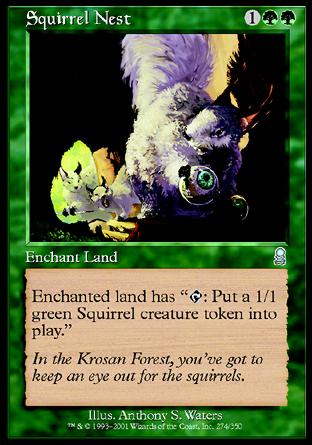 Squirrel Nest
Squirrel Nest
2024: Trolls, by Gajol
-
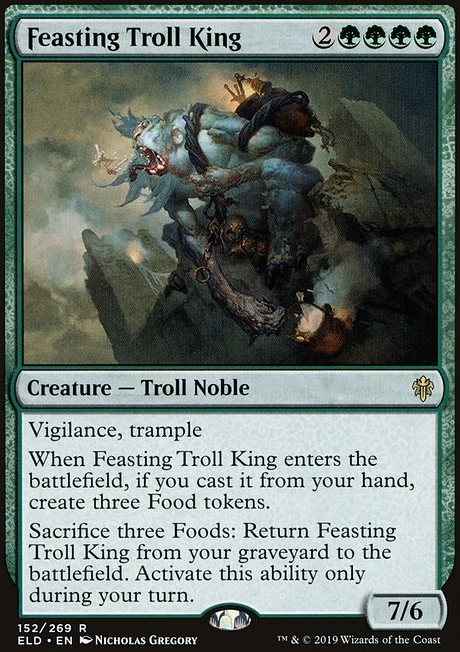 Feasting Troll King
Feasting Troll King
-
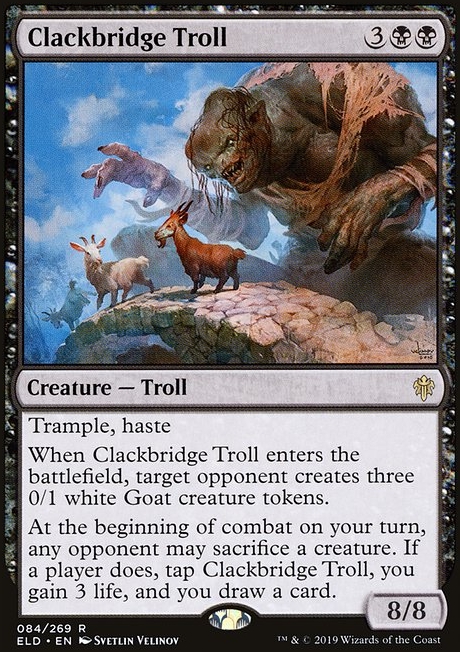 Clackbridge Troll
Clackbridge Troll
-
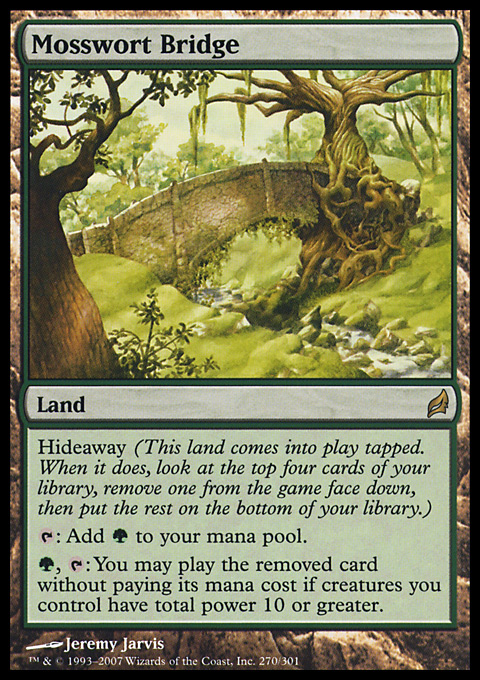 Mosswort Bridge
Mosswort Bridge
2025: Nobles, by Mg
-
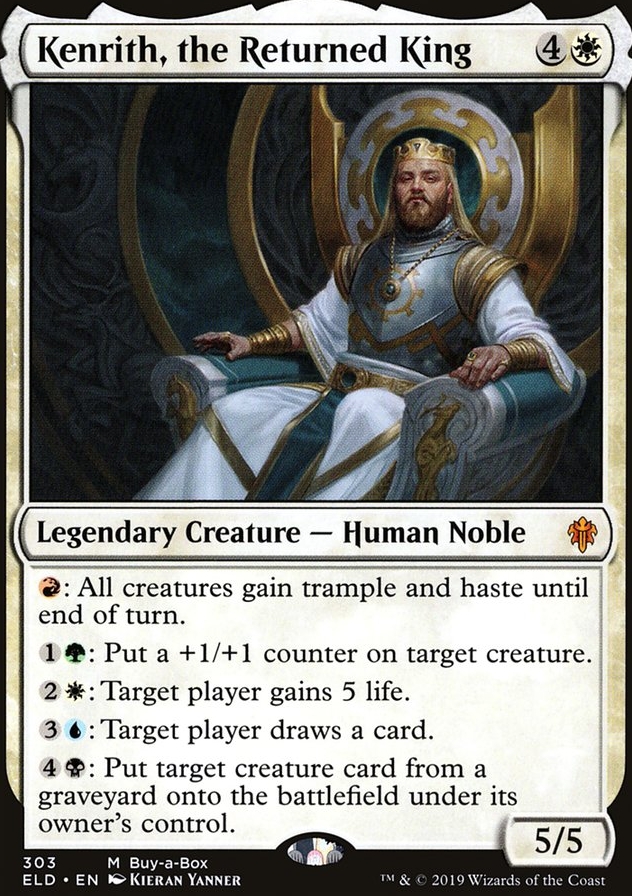 Kenrith, the Returned King
Kenrith, the Returned King
-
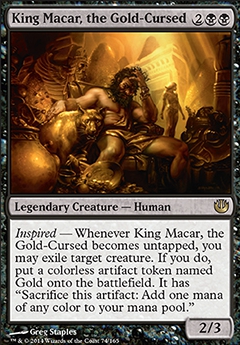 King Macar, the Gold-Cursed
King Macar, the Gold-Cursed
-
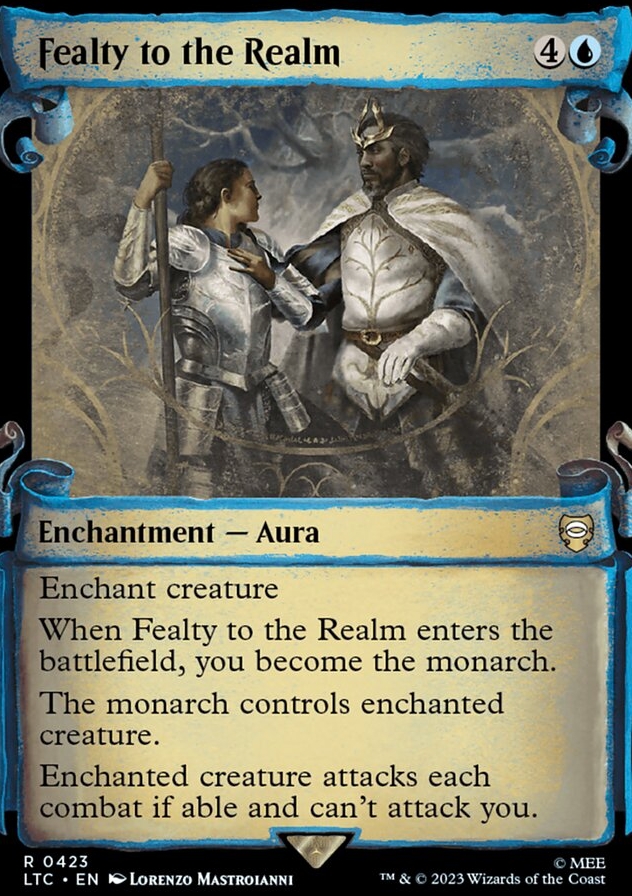 Fealty to the Realm
Fealty to the Realm
Tribecon Winners
2019: Zombies, by Kalle
-
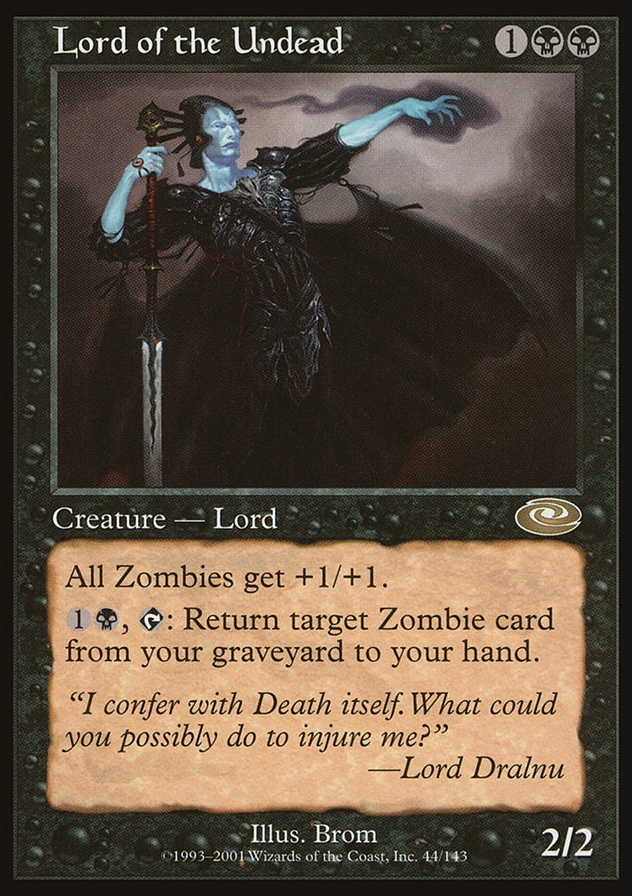 Lord of the Undead
Lord of the Undead
-
 Gray Merchant of Asphodel
Gray Merchant of Asphodel
-
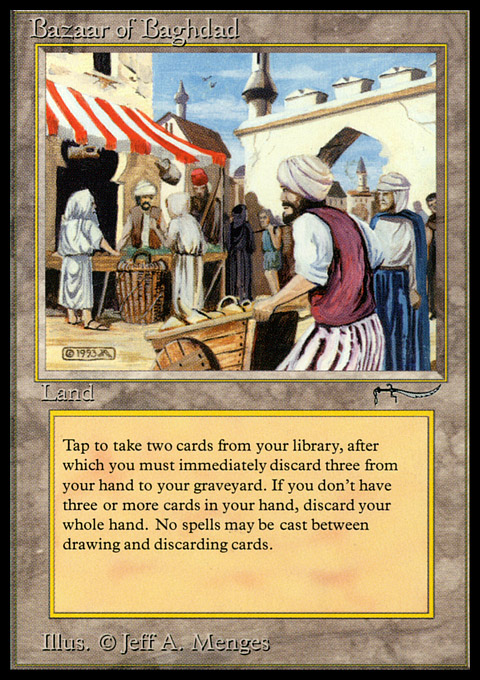 Bazaar of Baghdad
Bazaar of Baghdad
2020: Cancelled due to the pandemic
2021: Beasts, by Honka
-
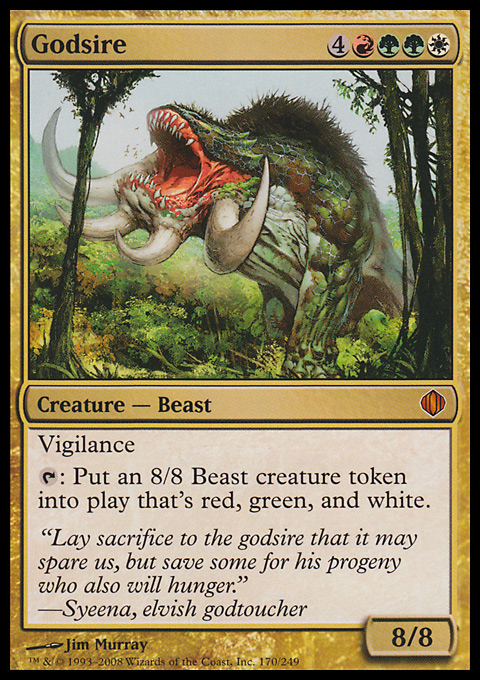 Godsire
Godsire
-
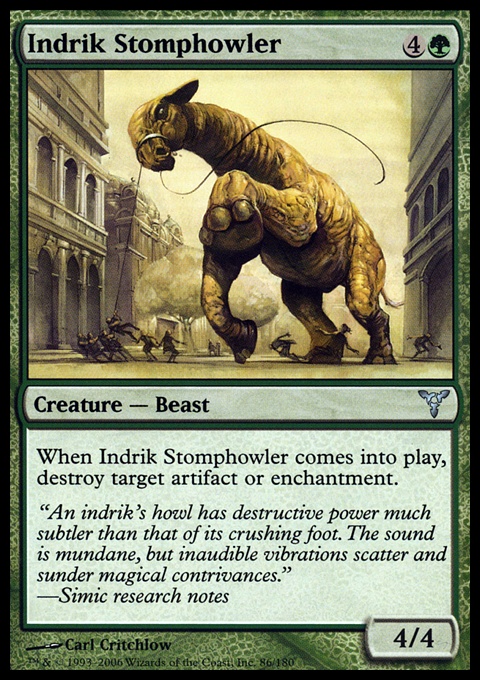 Indrik Stomphowler
Indrik Stomphowler
-
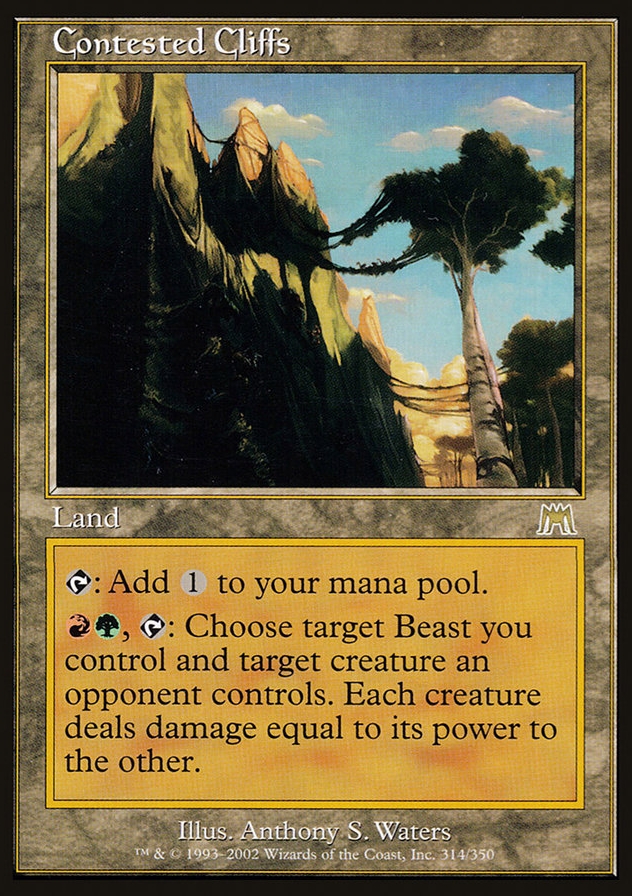 Contested Cliffs
Contested Cliffs
2022: Druids, by Hardy
-
 Gilt-Leaf Archdruid
Gilt-Leaf Archdruid
-
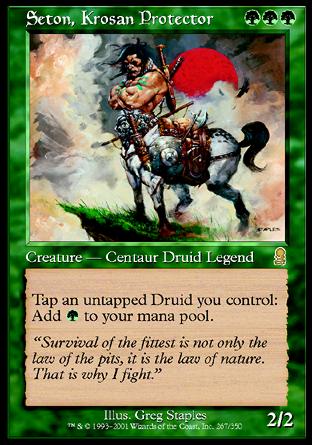 Seton, Krosan Protector/span>
Seton, Krosan Protector/span>
-
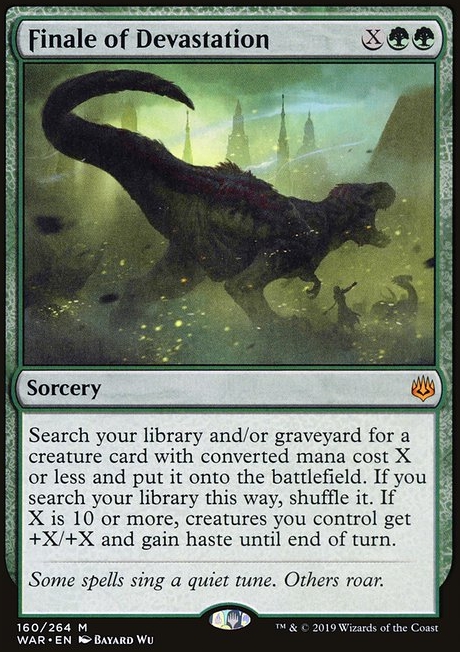 Finale of Devastation
Finale of Devastation
2023: Thrulls, by Mg
-
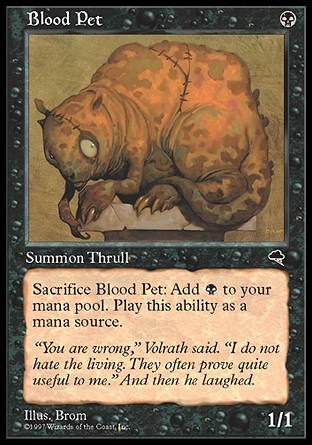 Blood Pet
Blood Pet
-
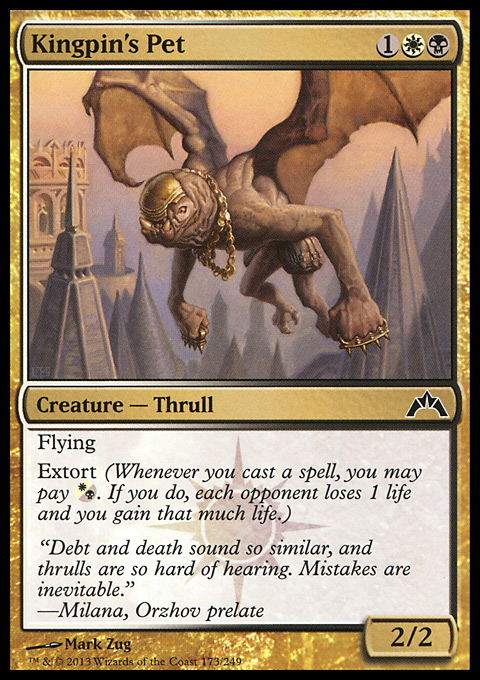 Kingpin's pet
Kingpin's pet
-
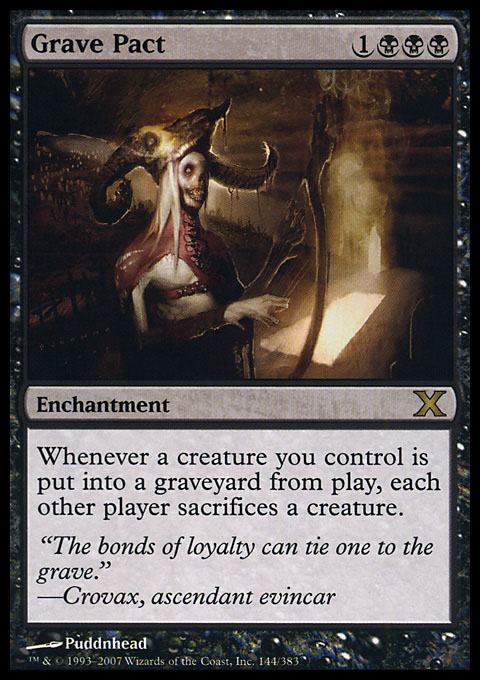 Grave Pact
Grave Pact
2024: Goblins, by Gajol
-
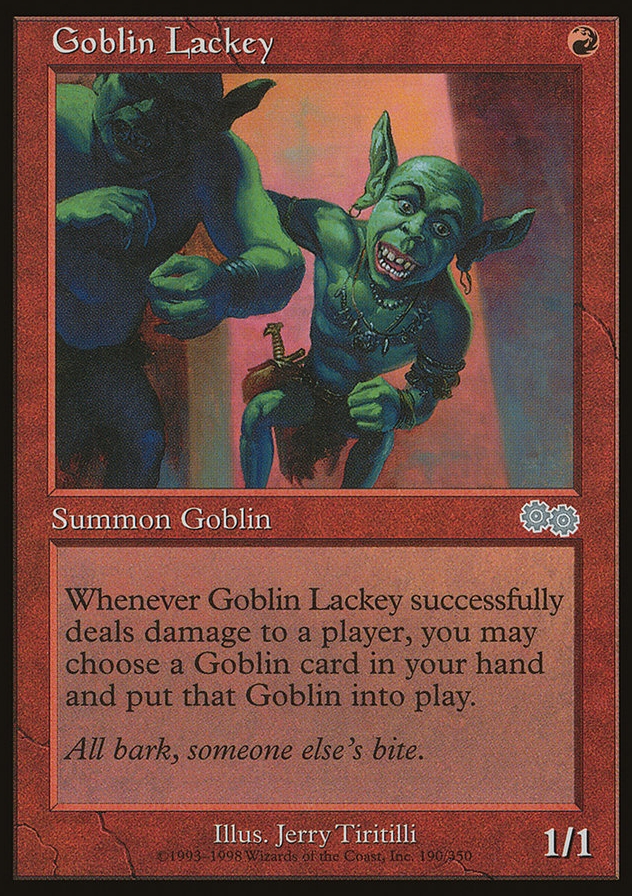 Goblin Lackey
Goblin Lackey
-
 Goblin Matron
Goblin Matron
-
 Muxus, Goblin Grandee
Muxus, Goblin Grandee
Historical Primers
Various
Legal stuff
- All card names, artwork, and intrinsic Magic the Gathering game concepts are copyright Wizards of the Coast.
- This webpage is written by Mg. Feel free to copy or re-use any text as you see fit under the terms of the Academic Free License (AFL).
- The design of this webpage is heavily inspired by Gavin Duggan's original Elder Dragon Highlander web page (2005-2011), and much of the page source is lifted from that page. Gavin's page was released under the terms of the Academic Free License (AFL) as of April 24th, 2007. This page is also available for public reuse with attribution, as per the terms of that license.
|
 MTG:Tribelander Rules
MTG:Tribelander Rules 